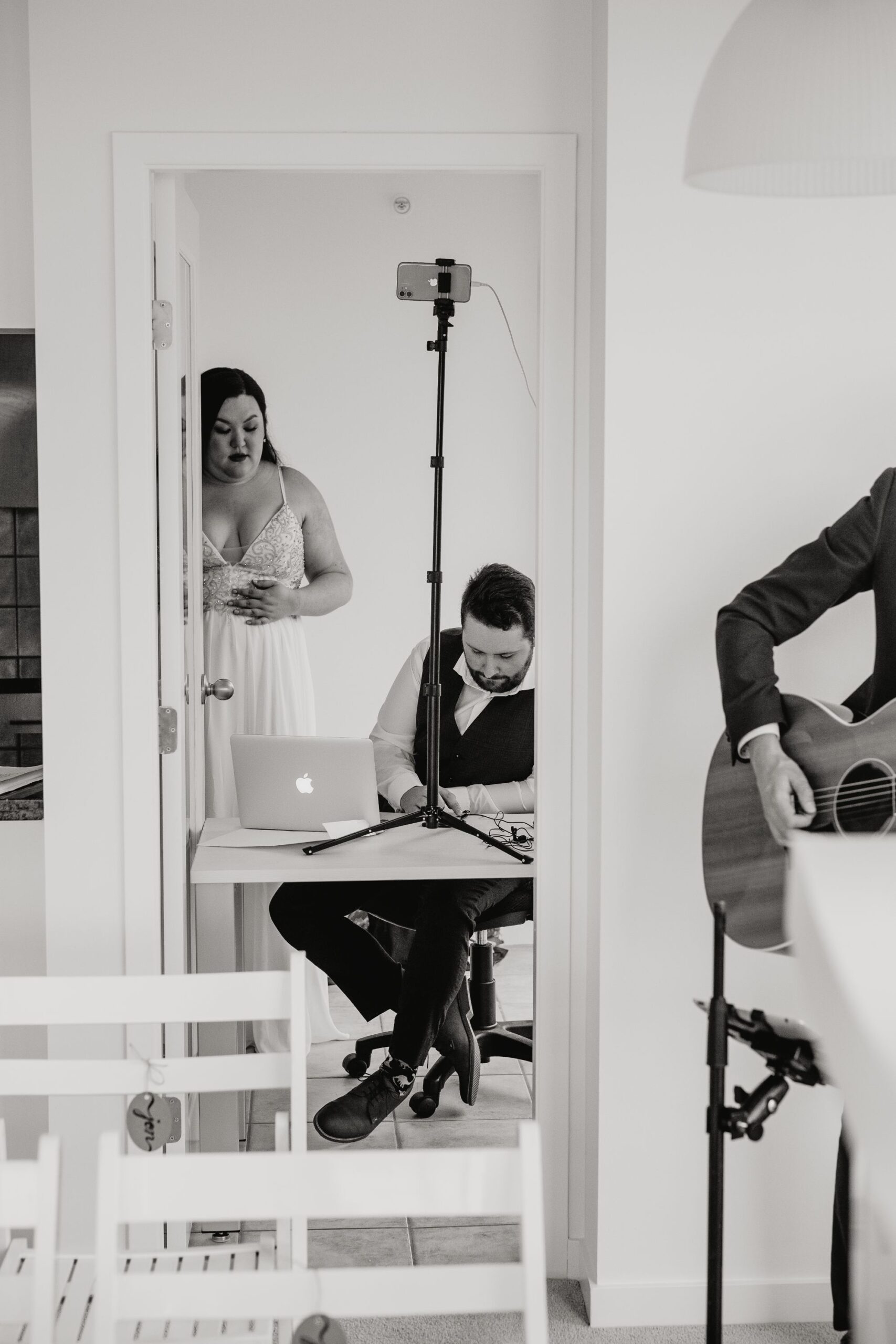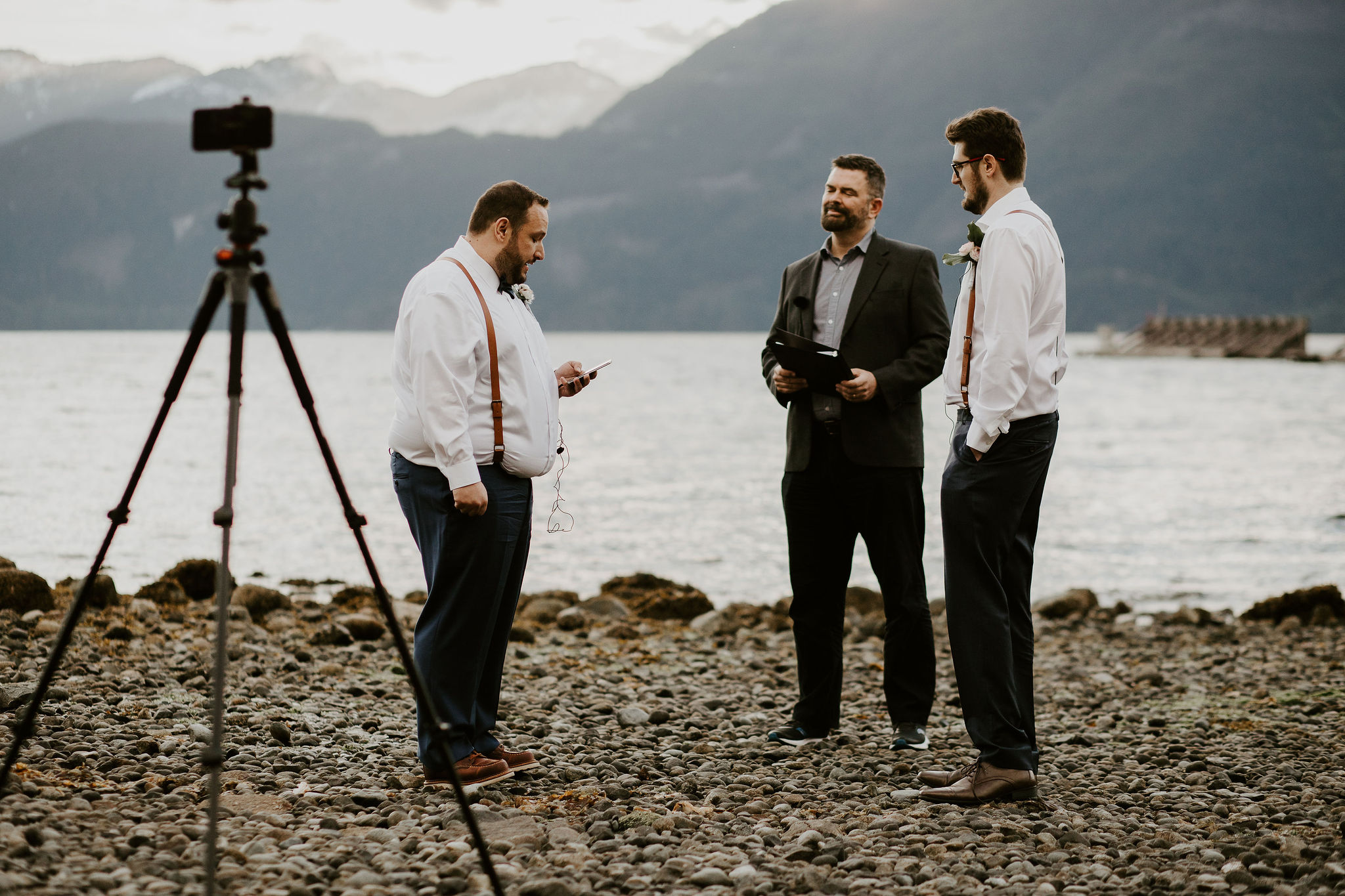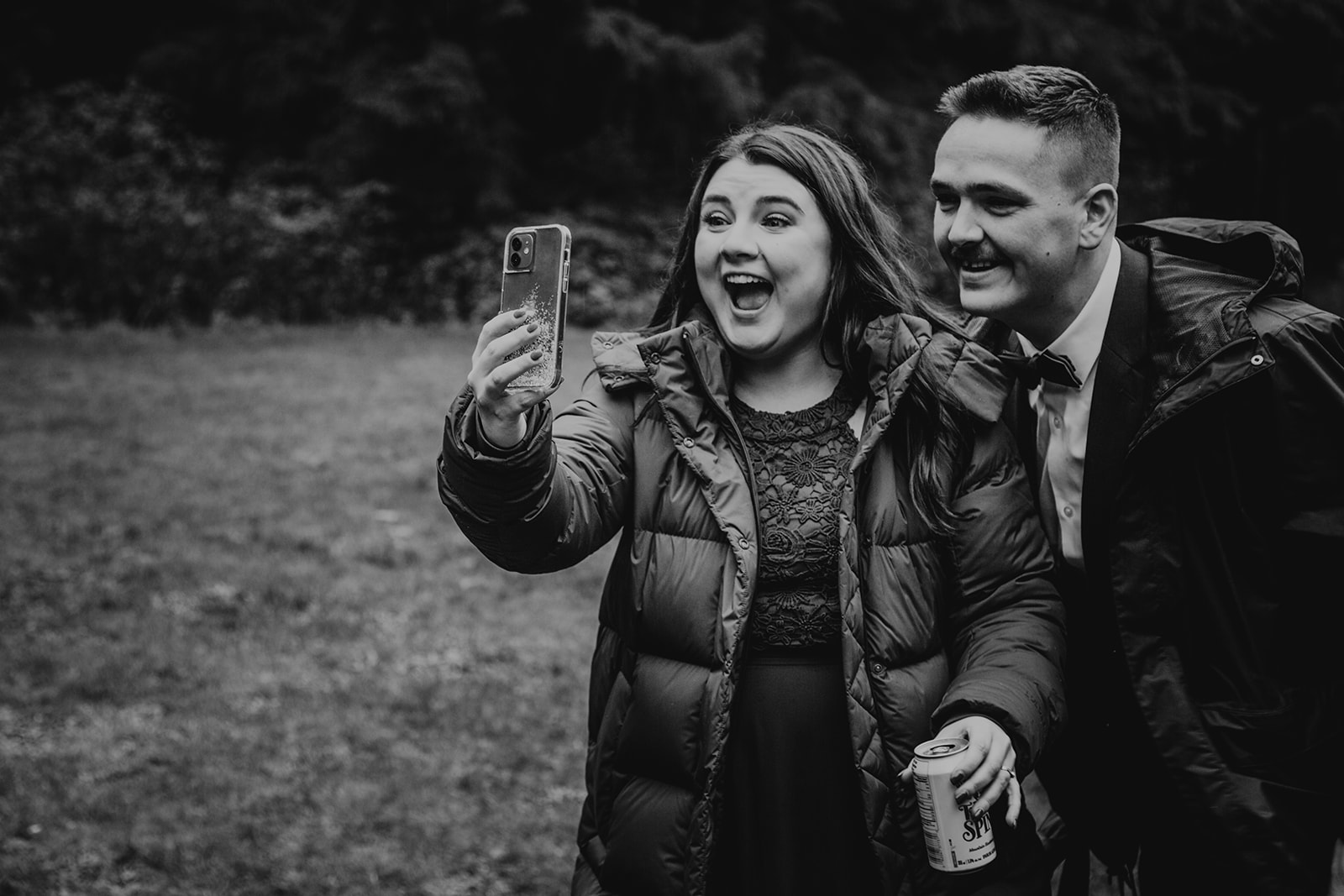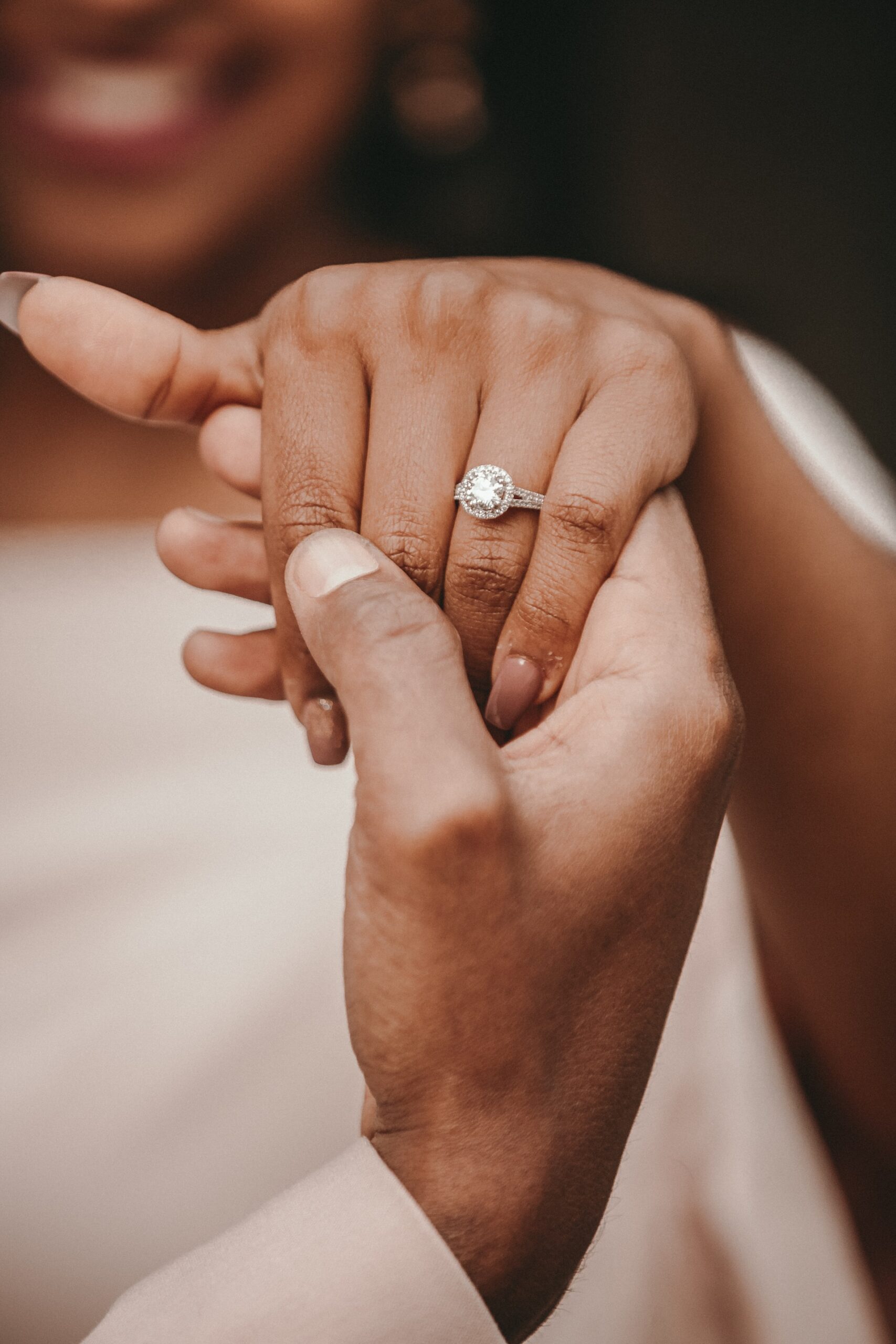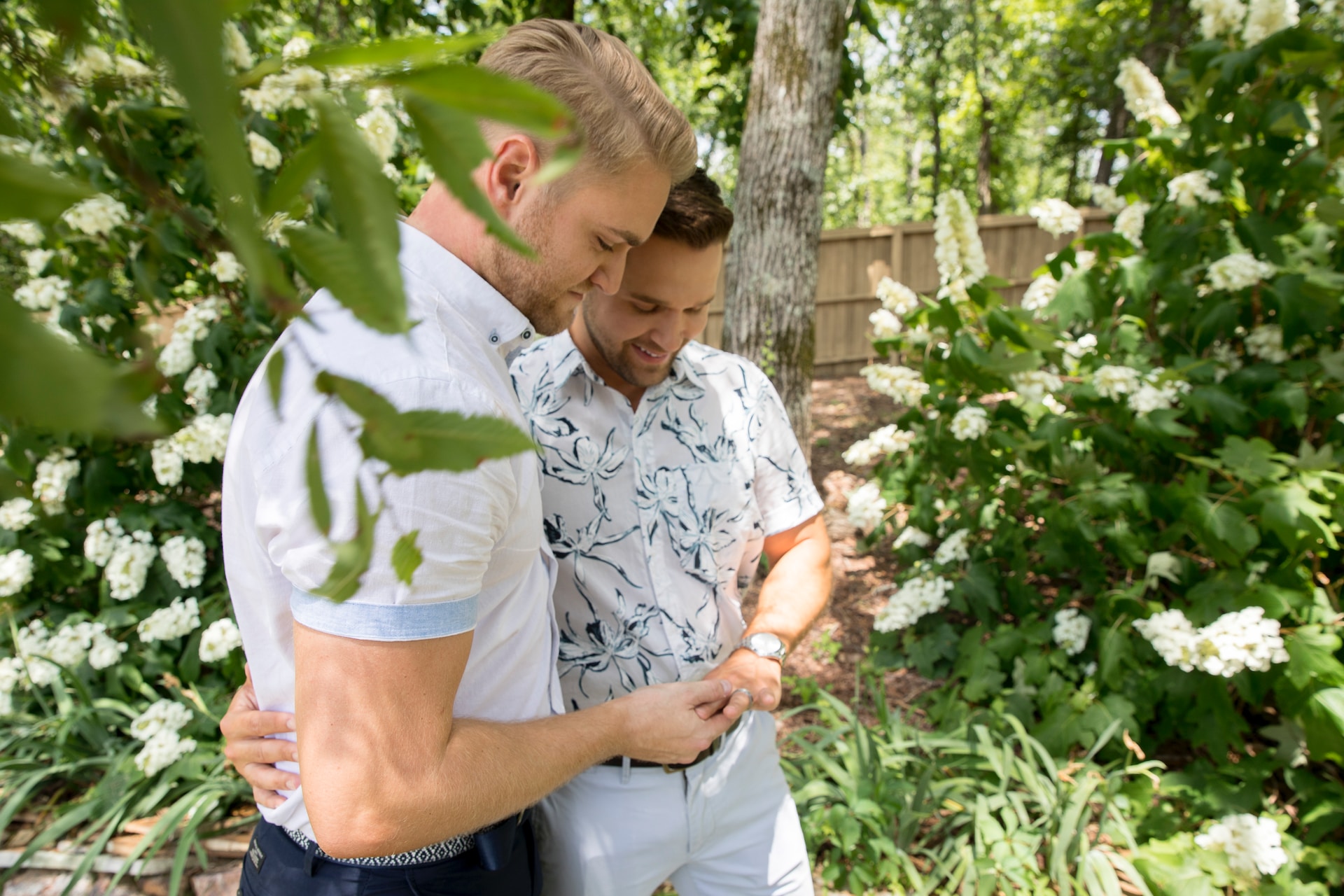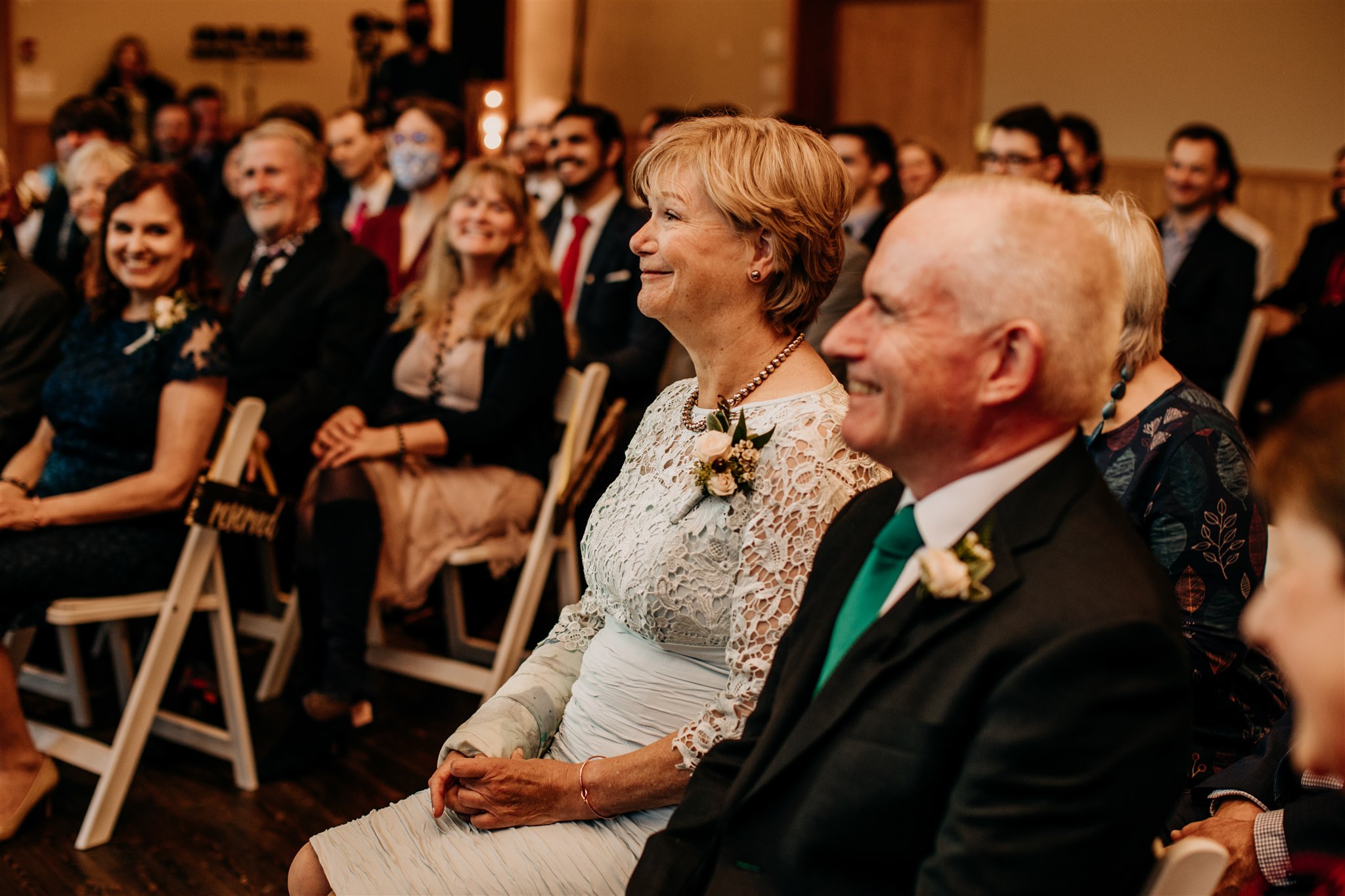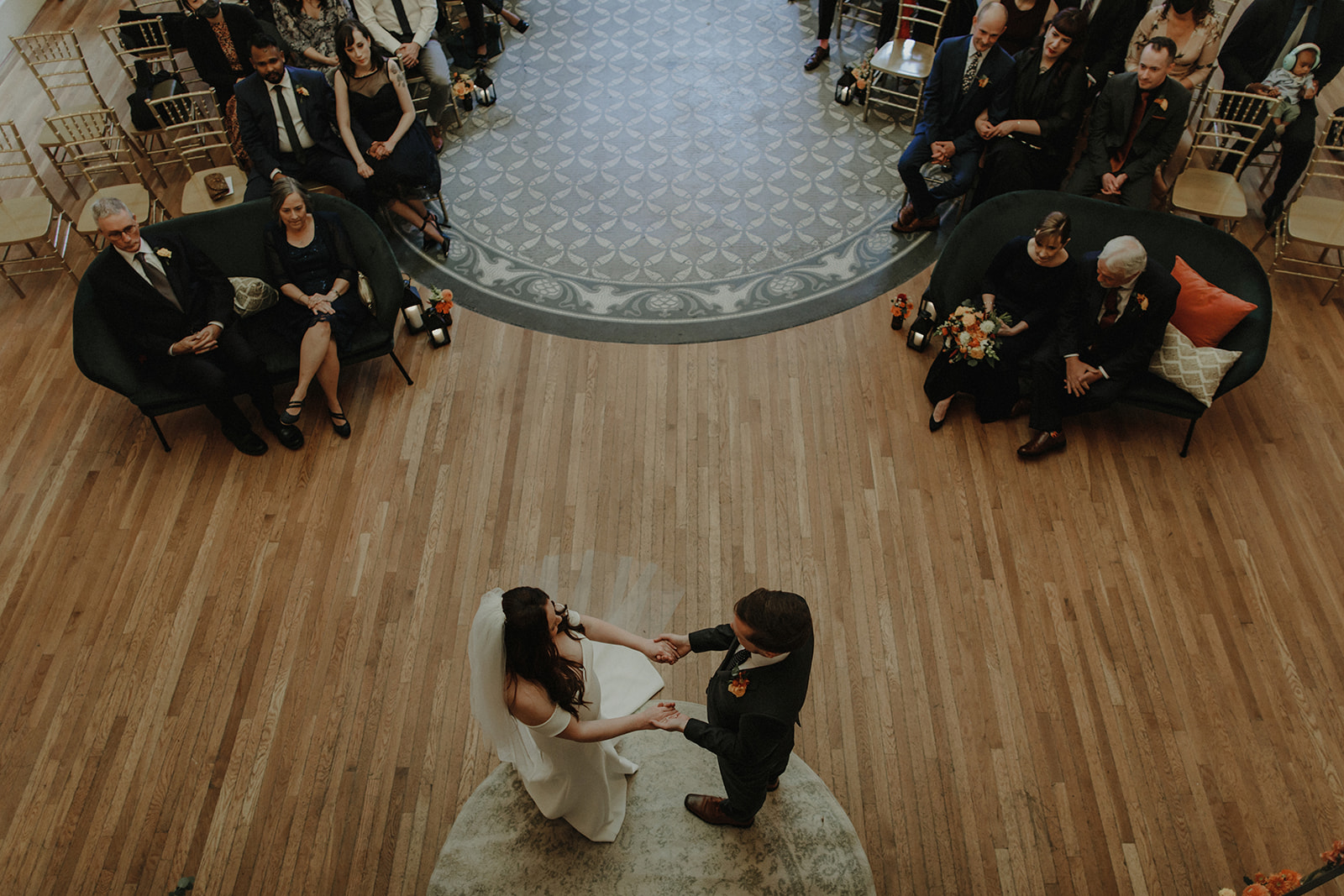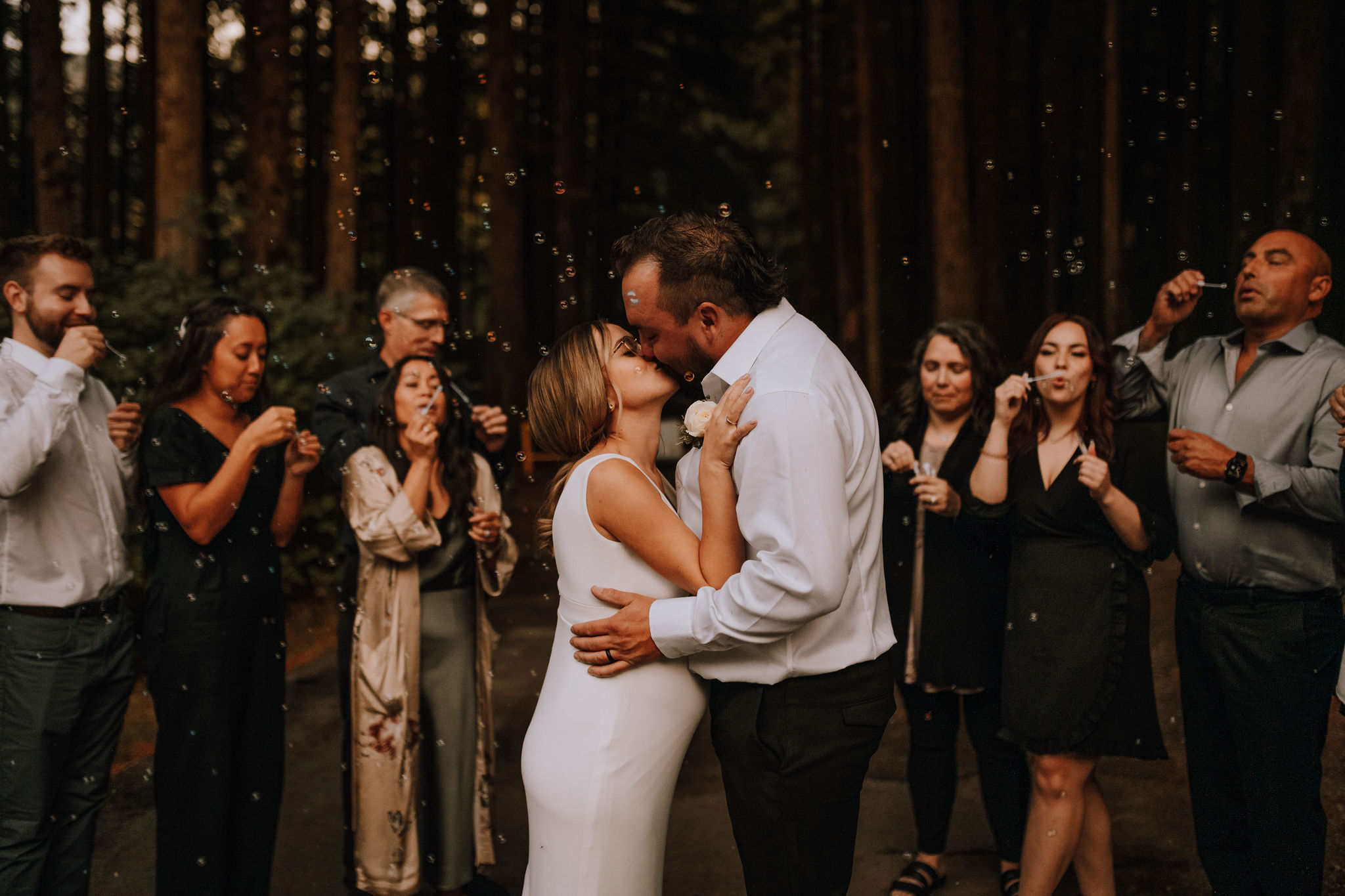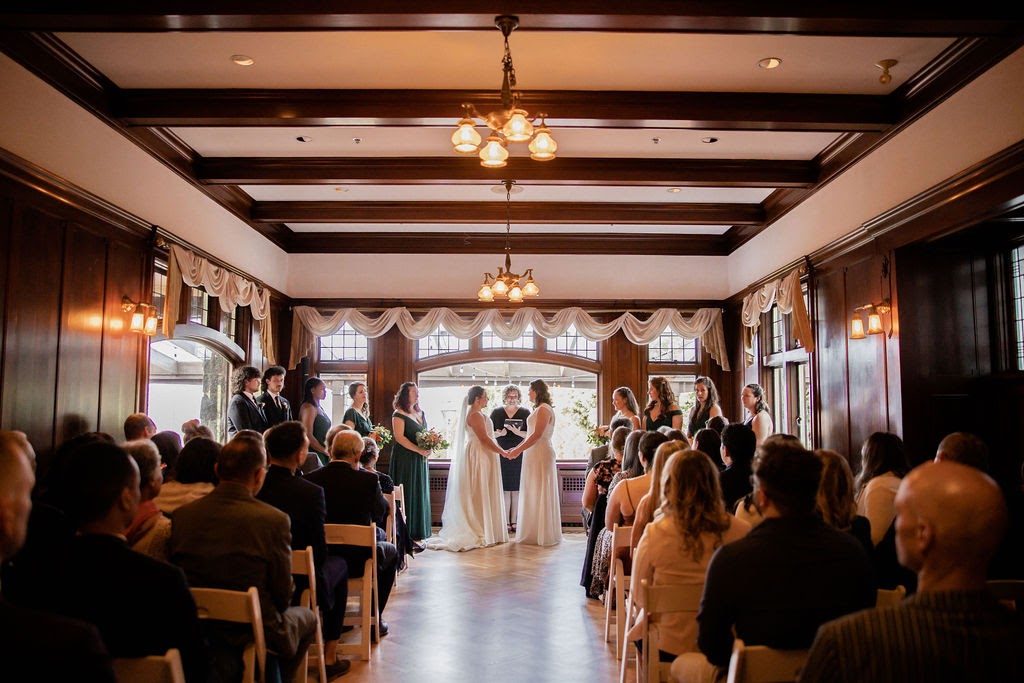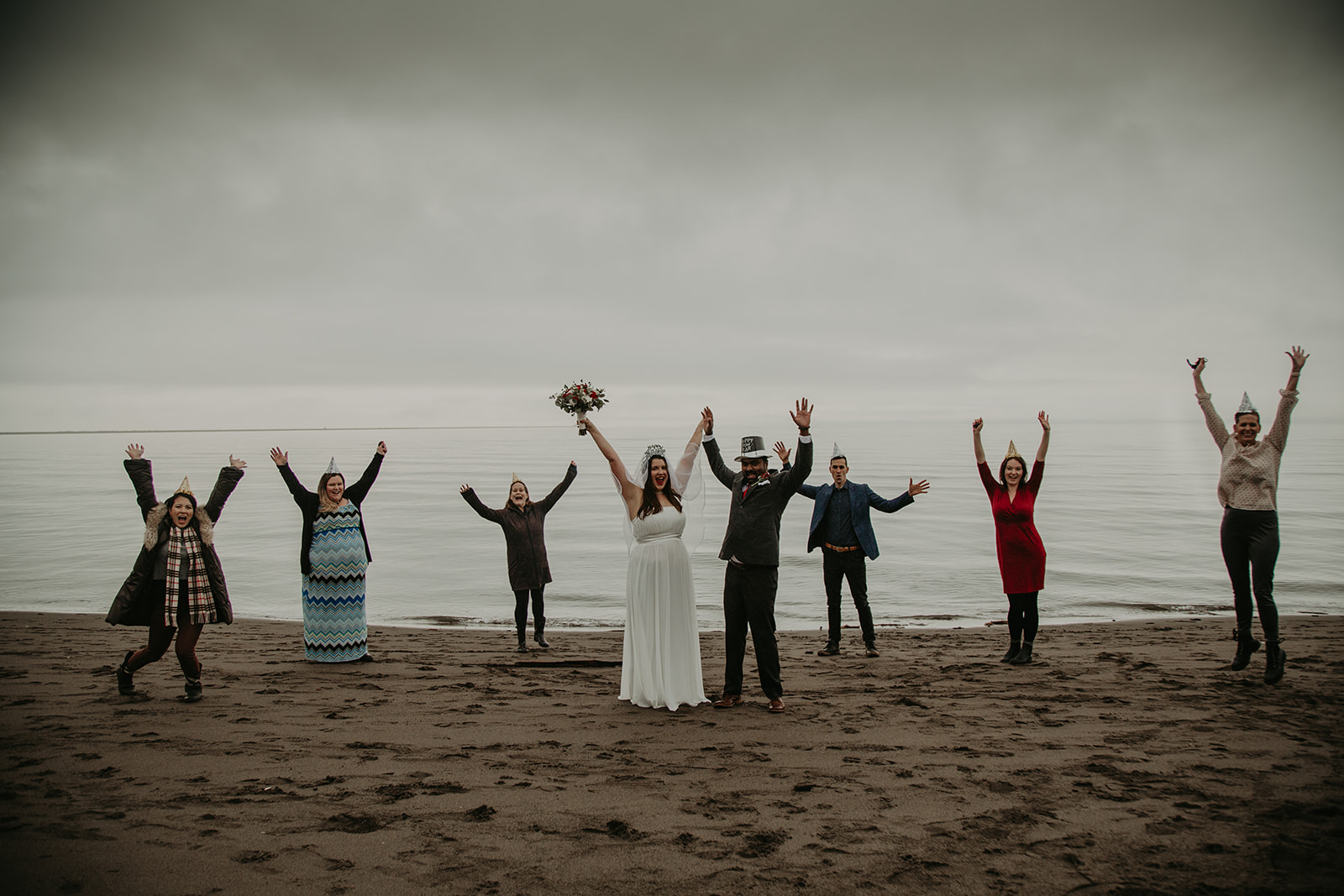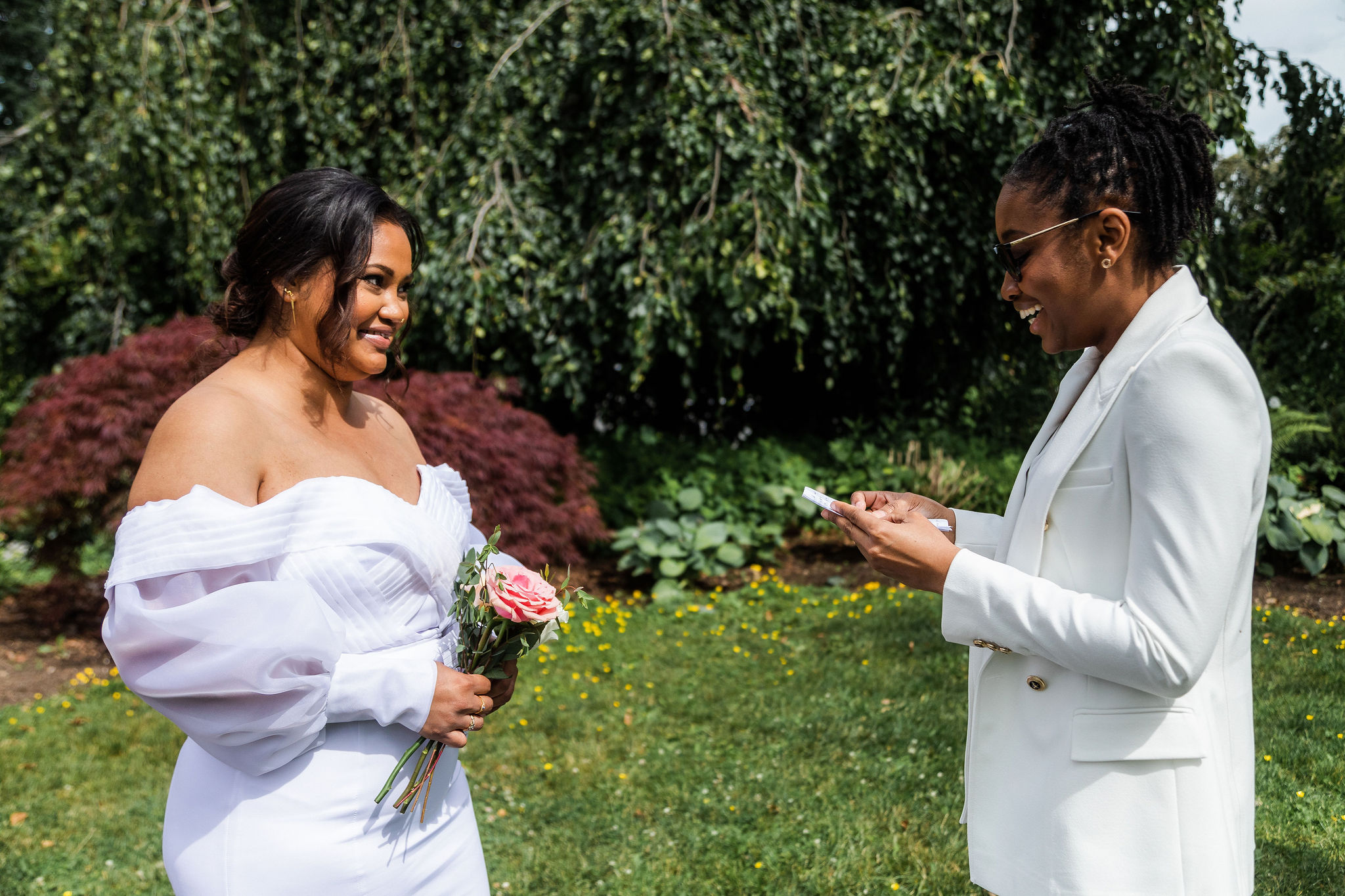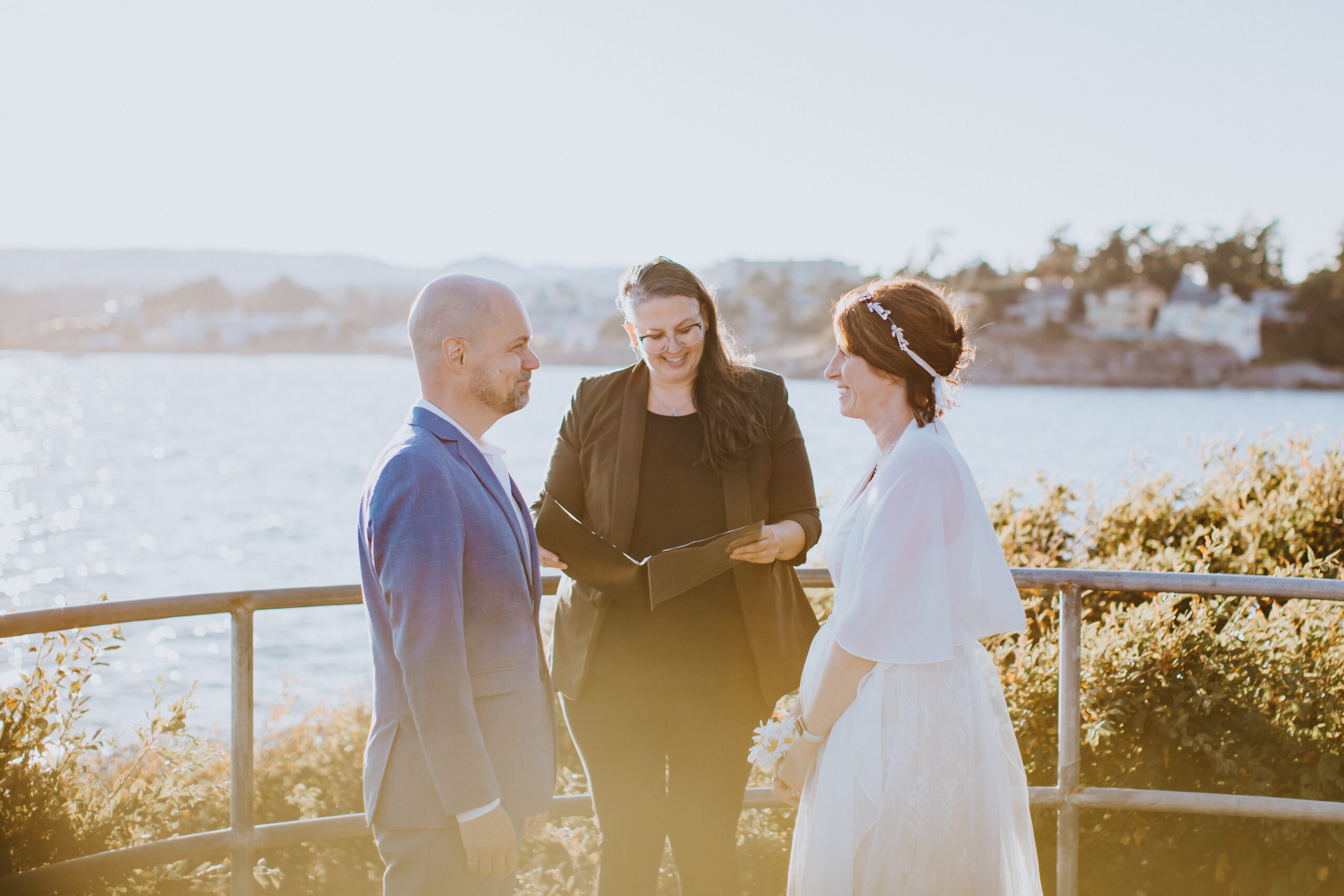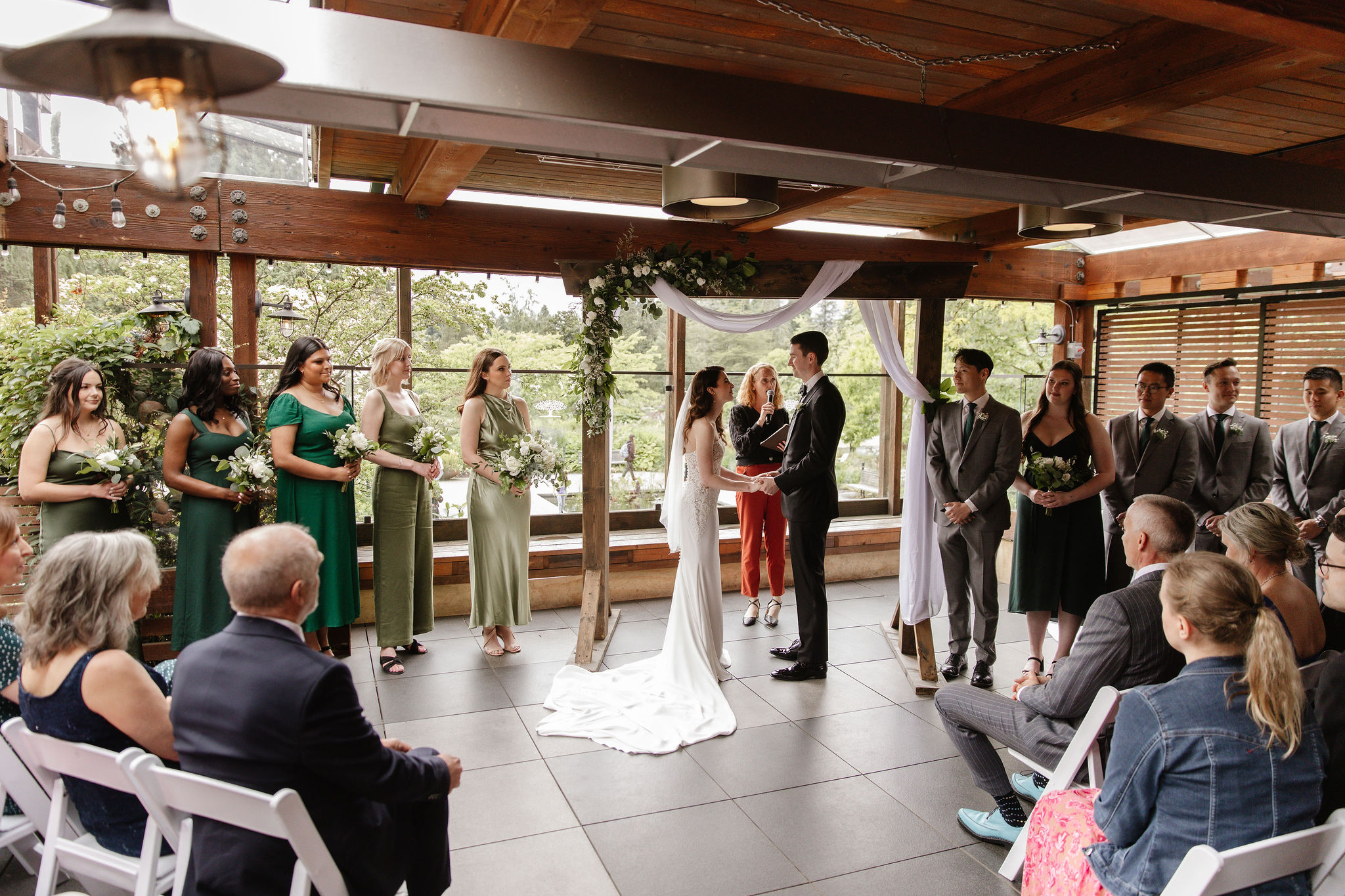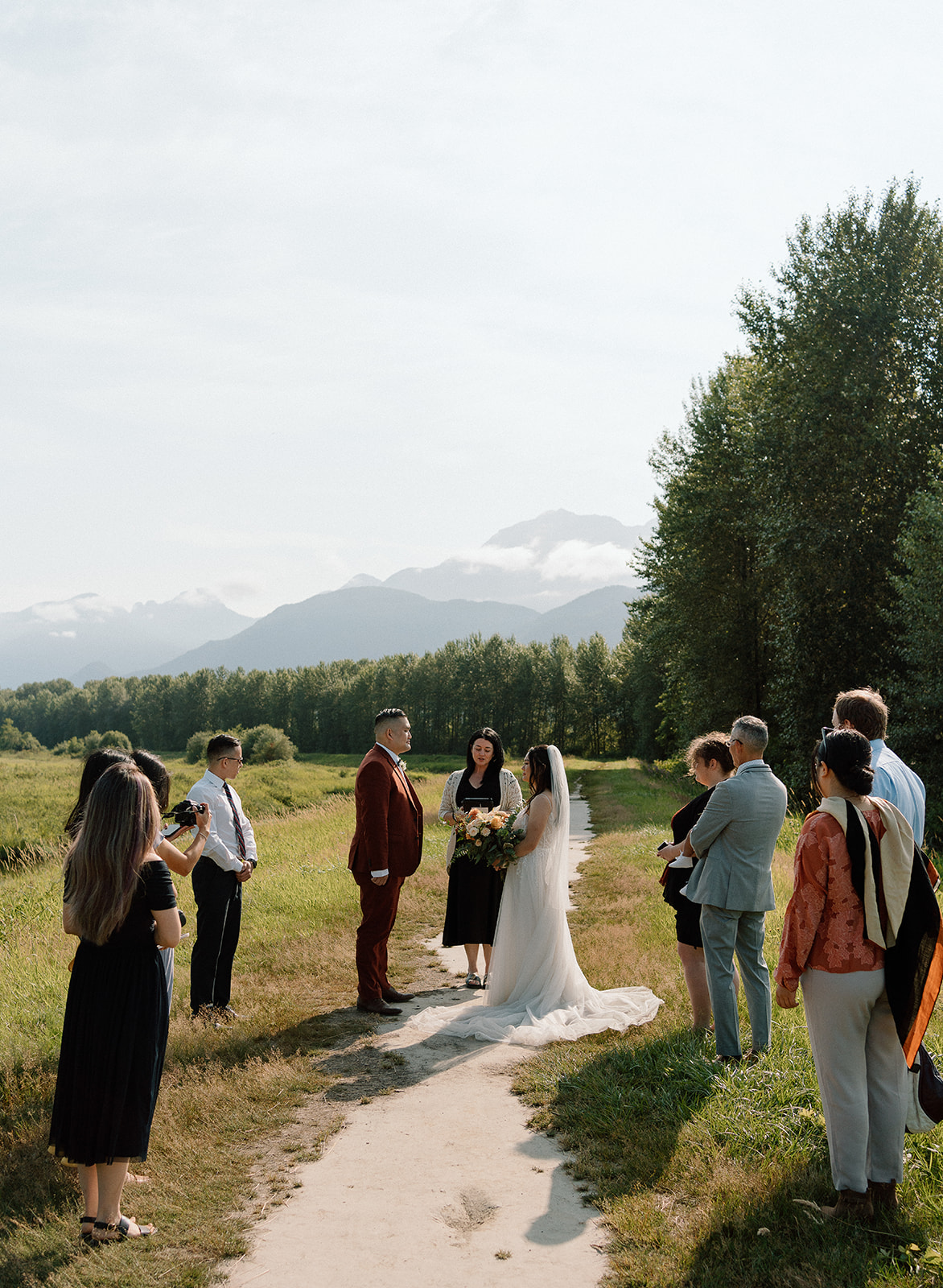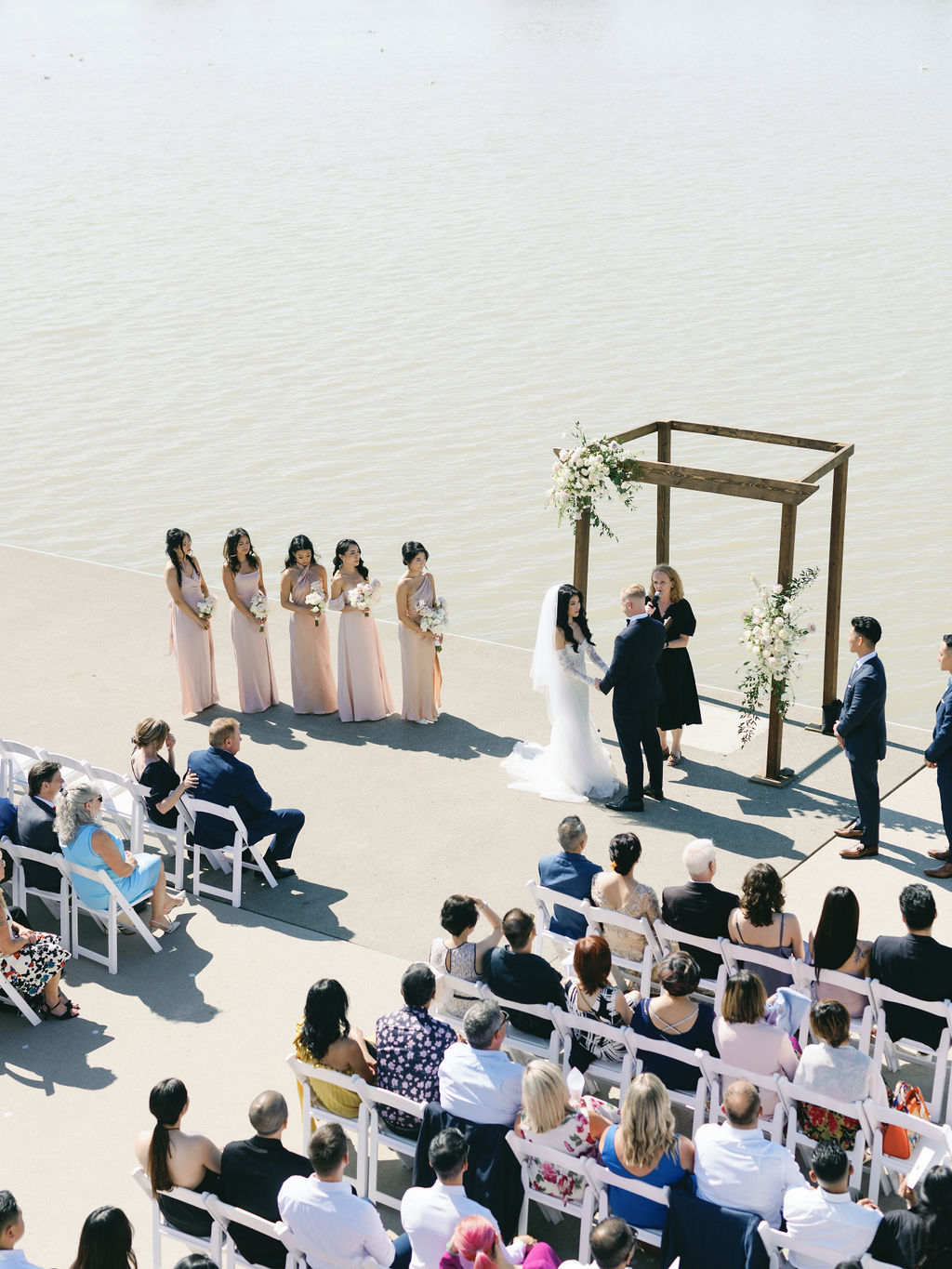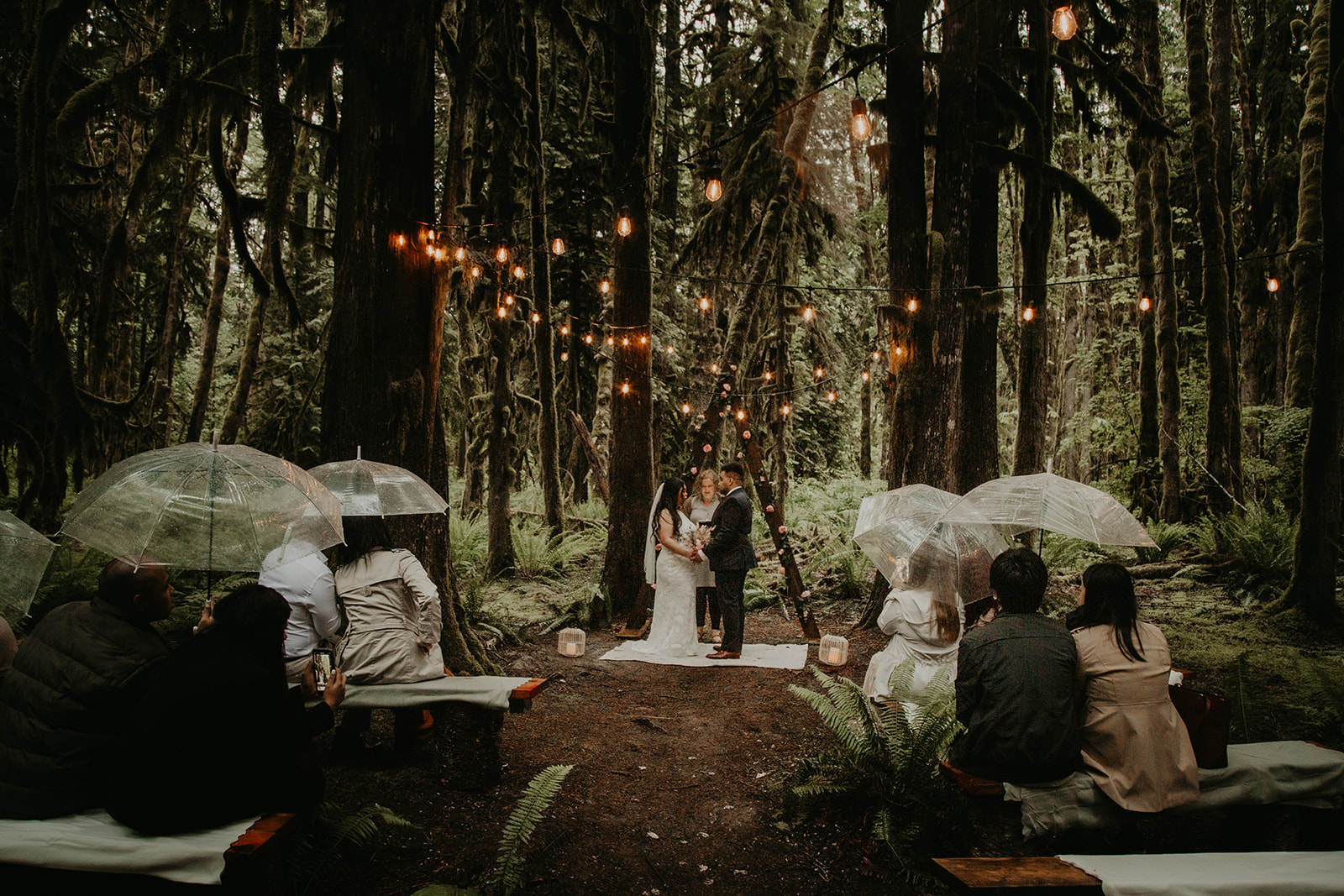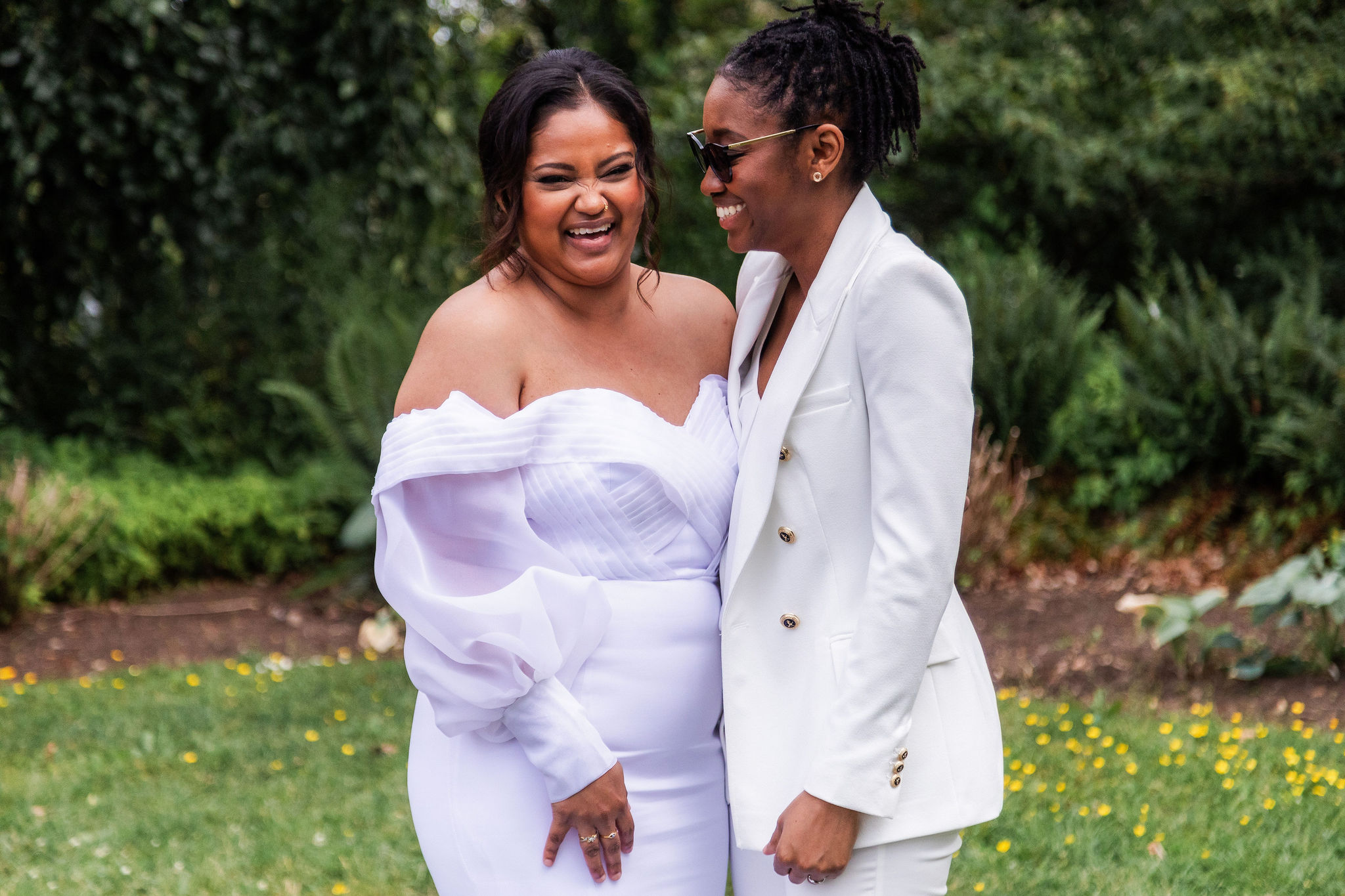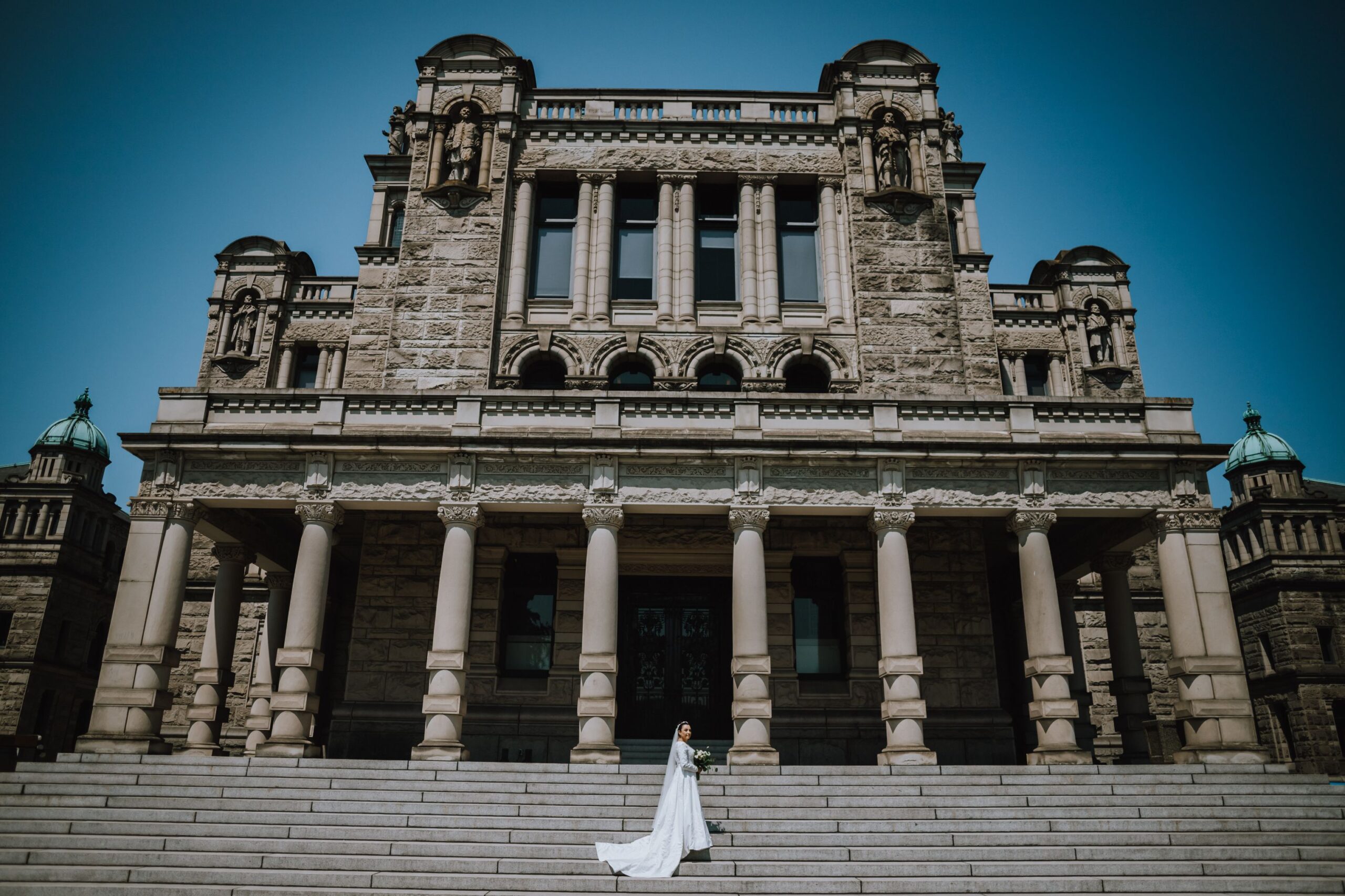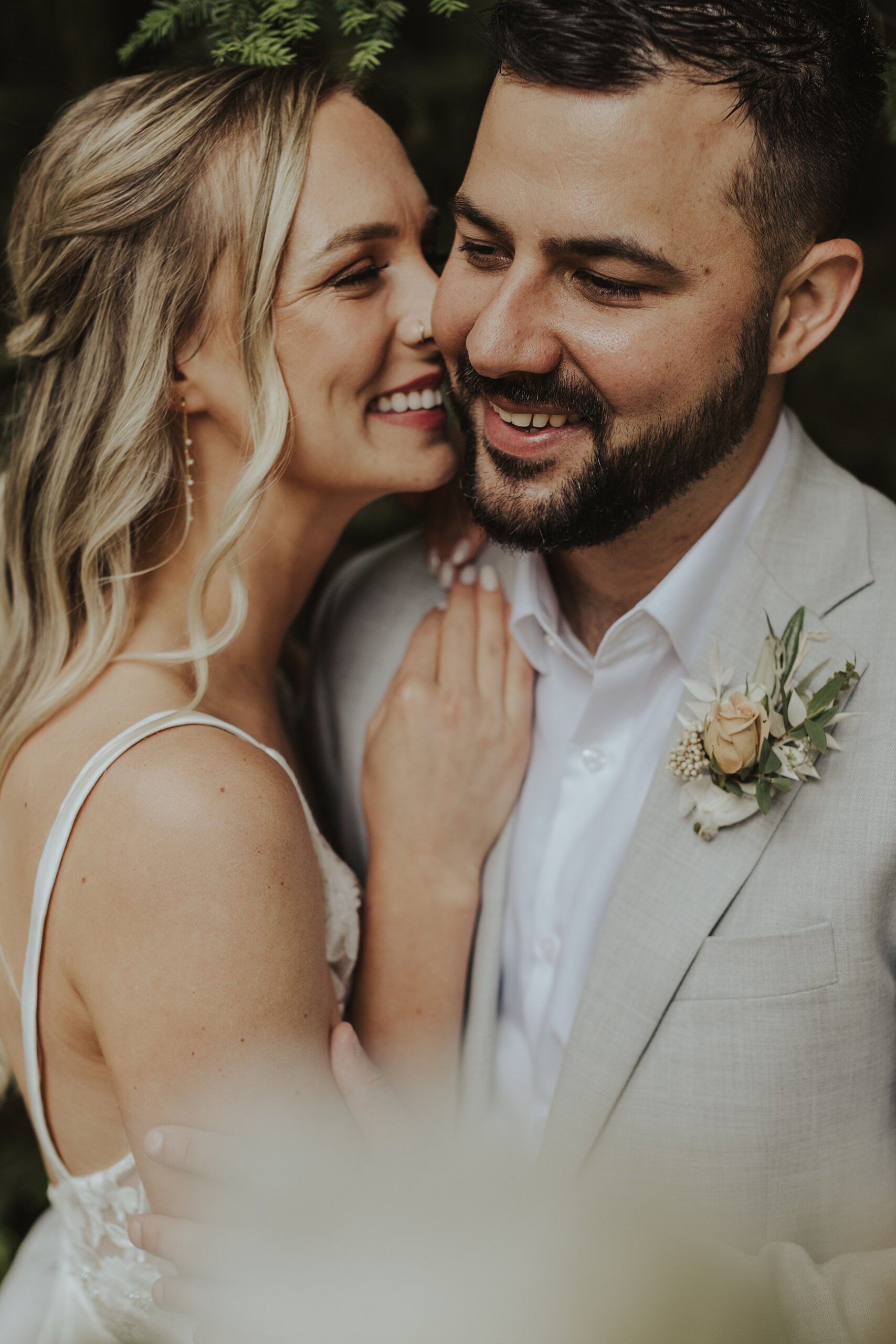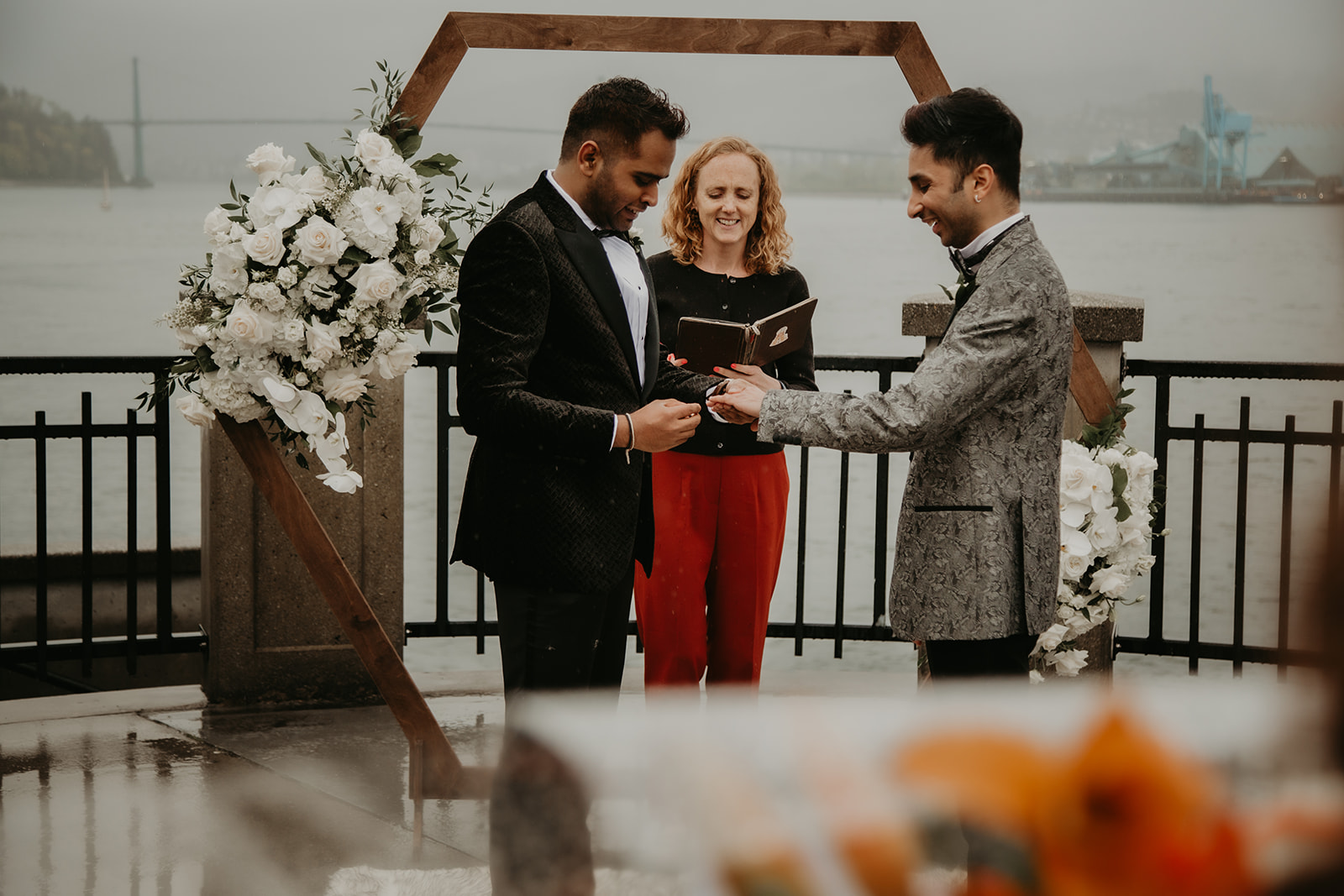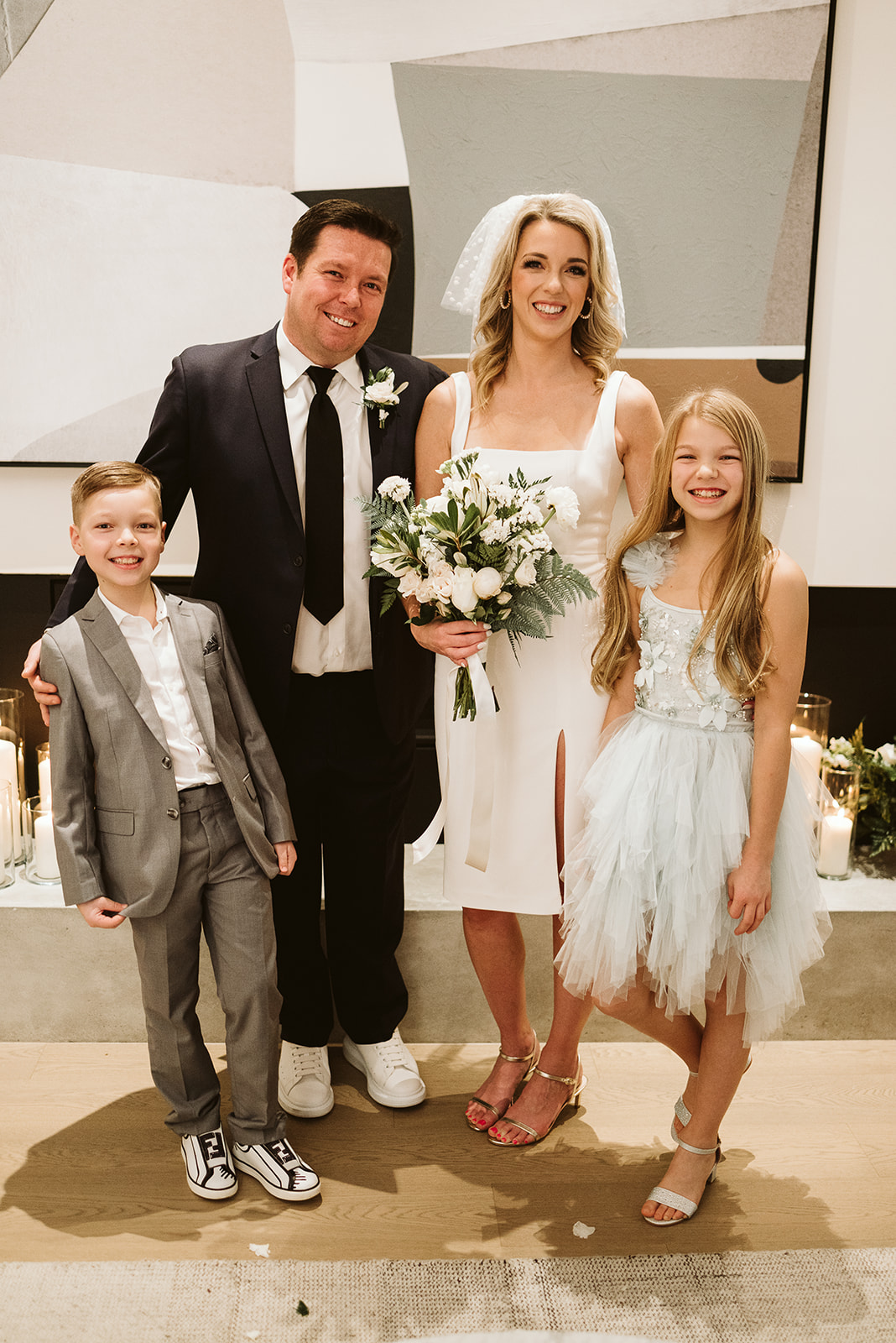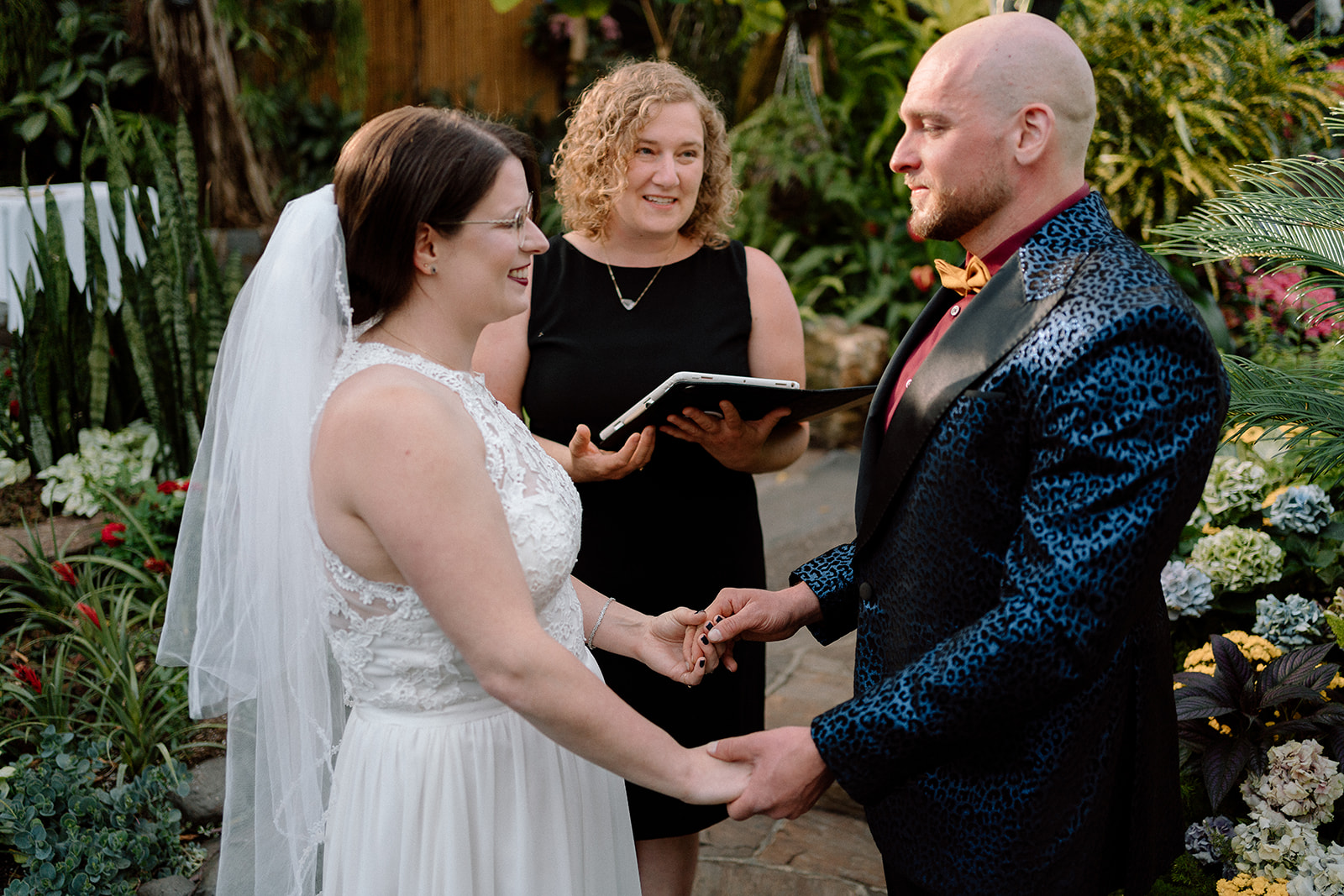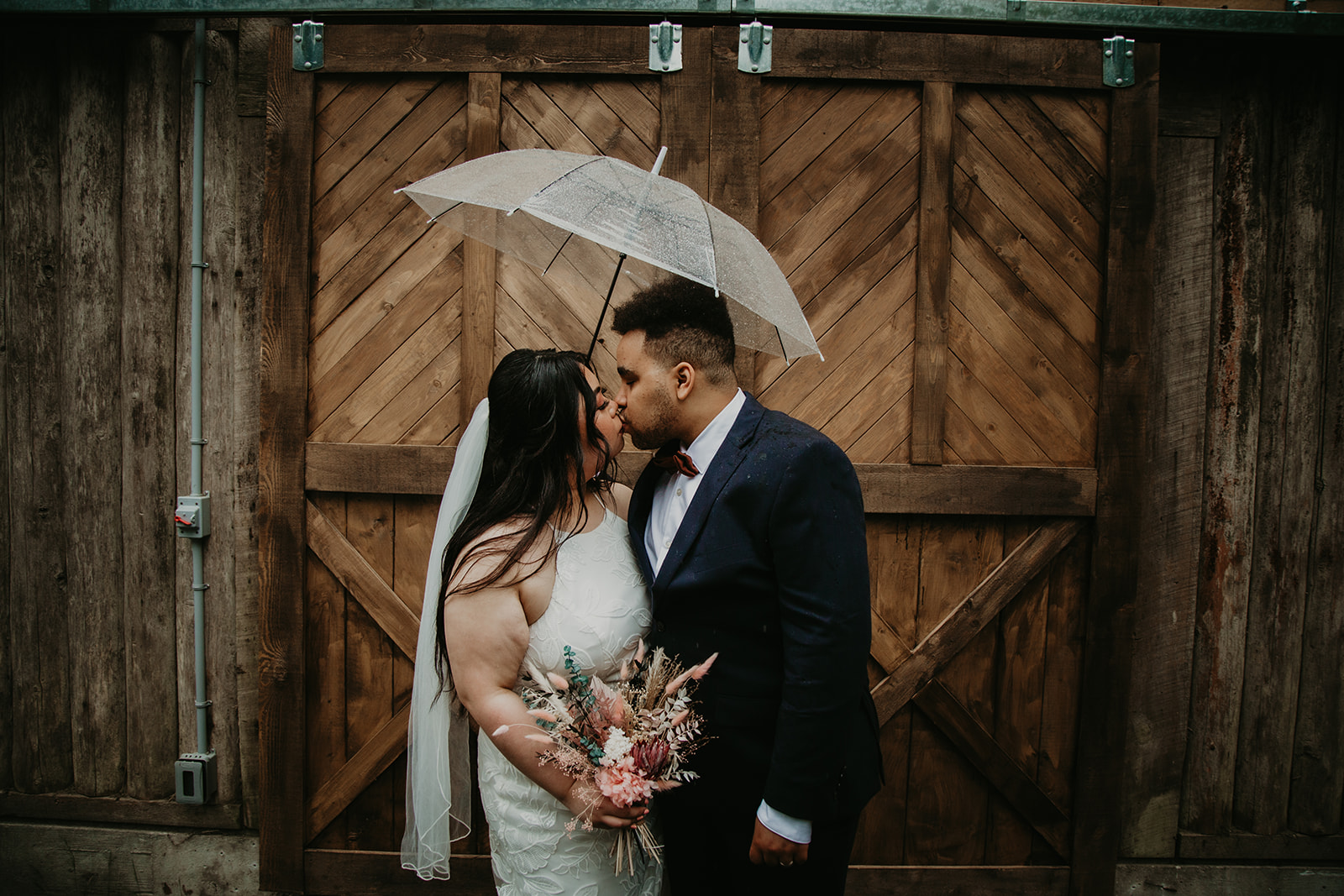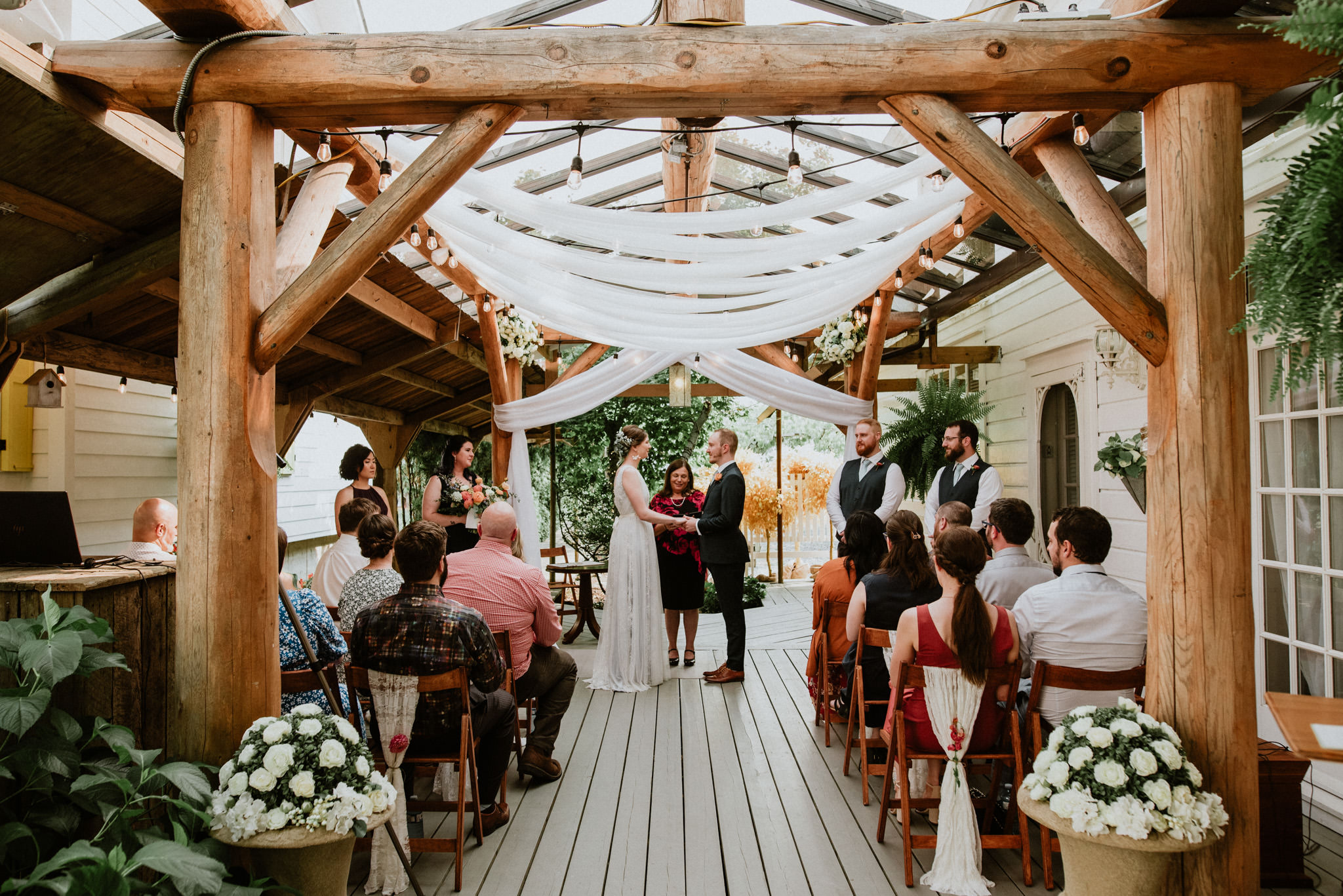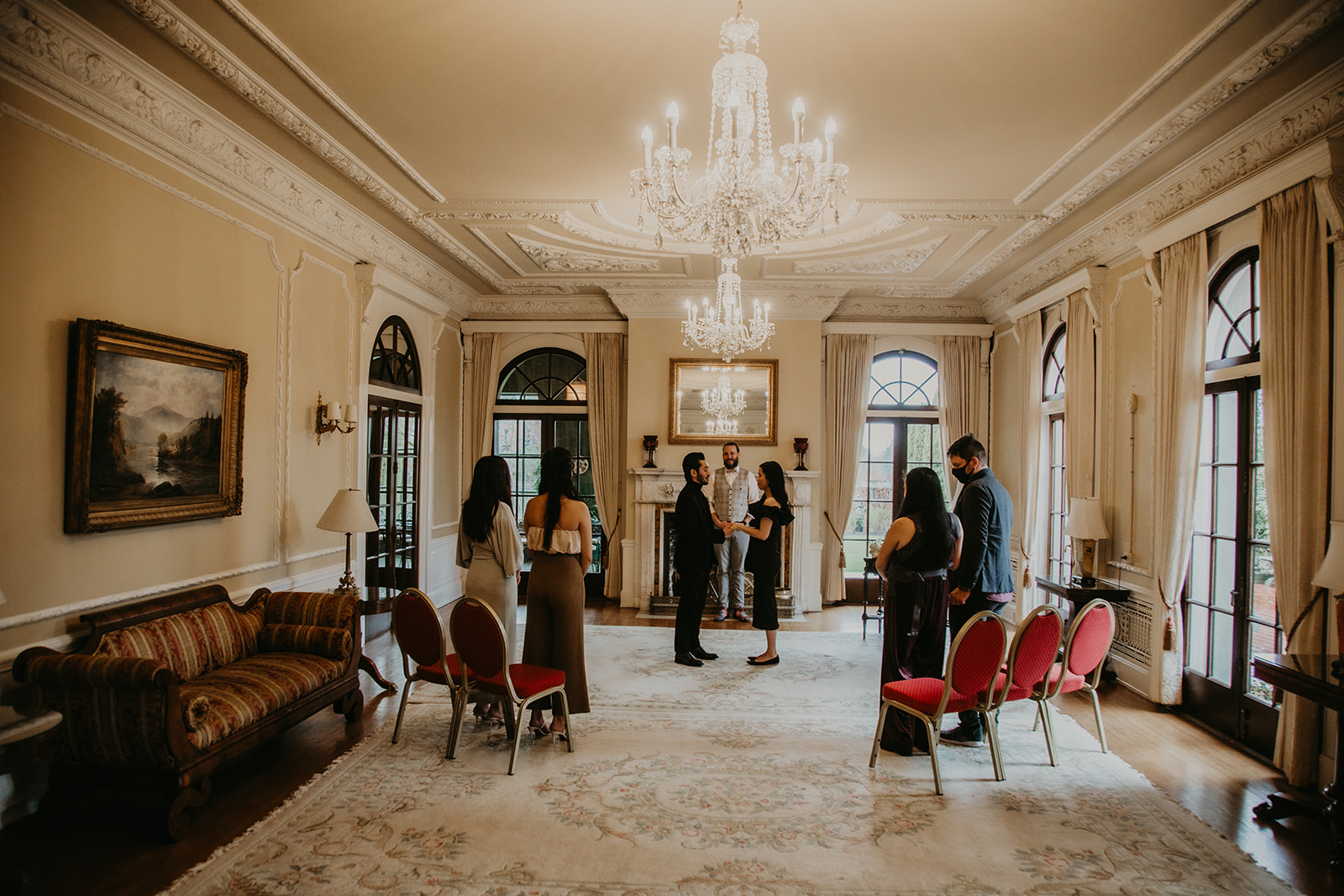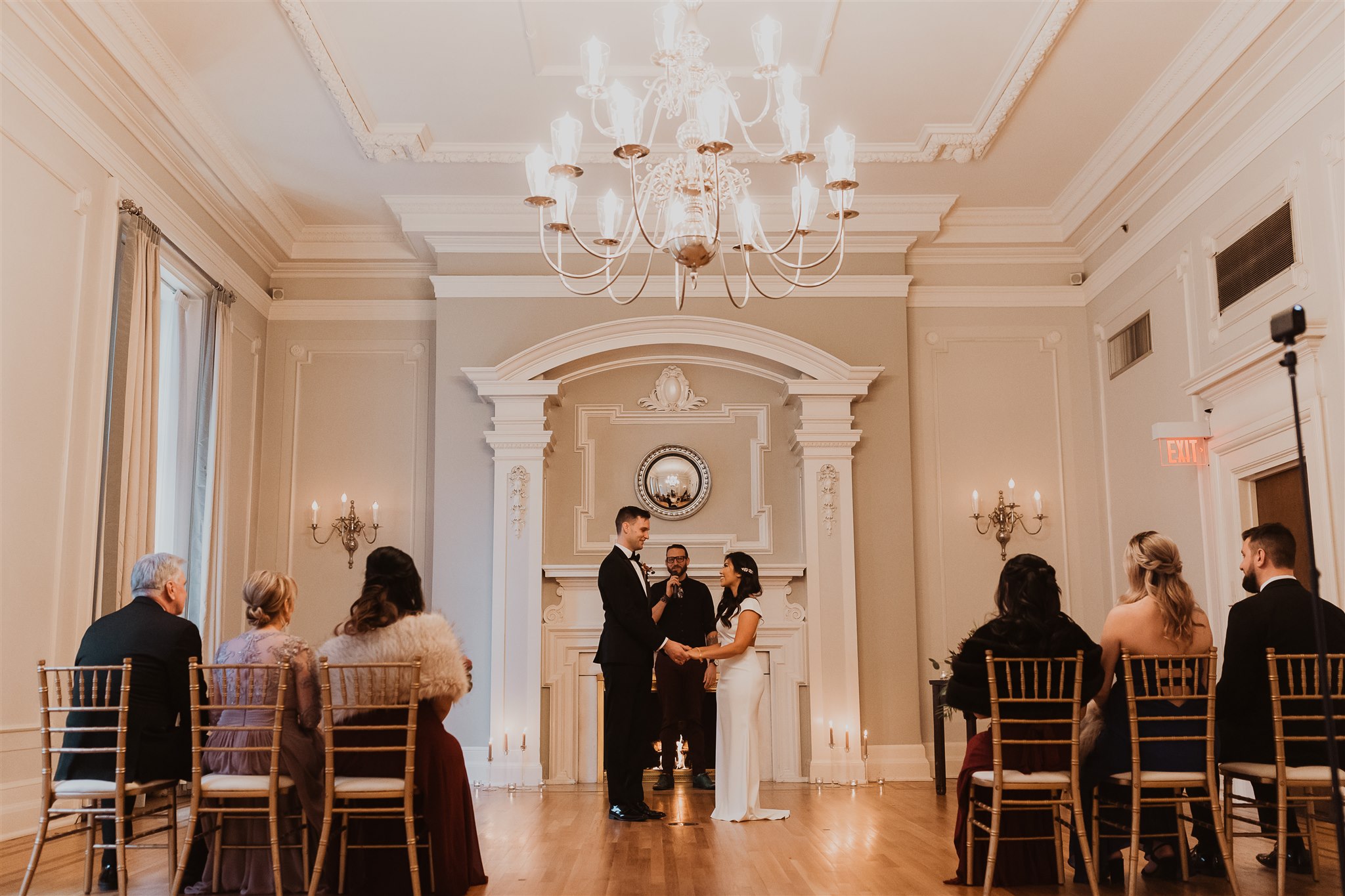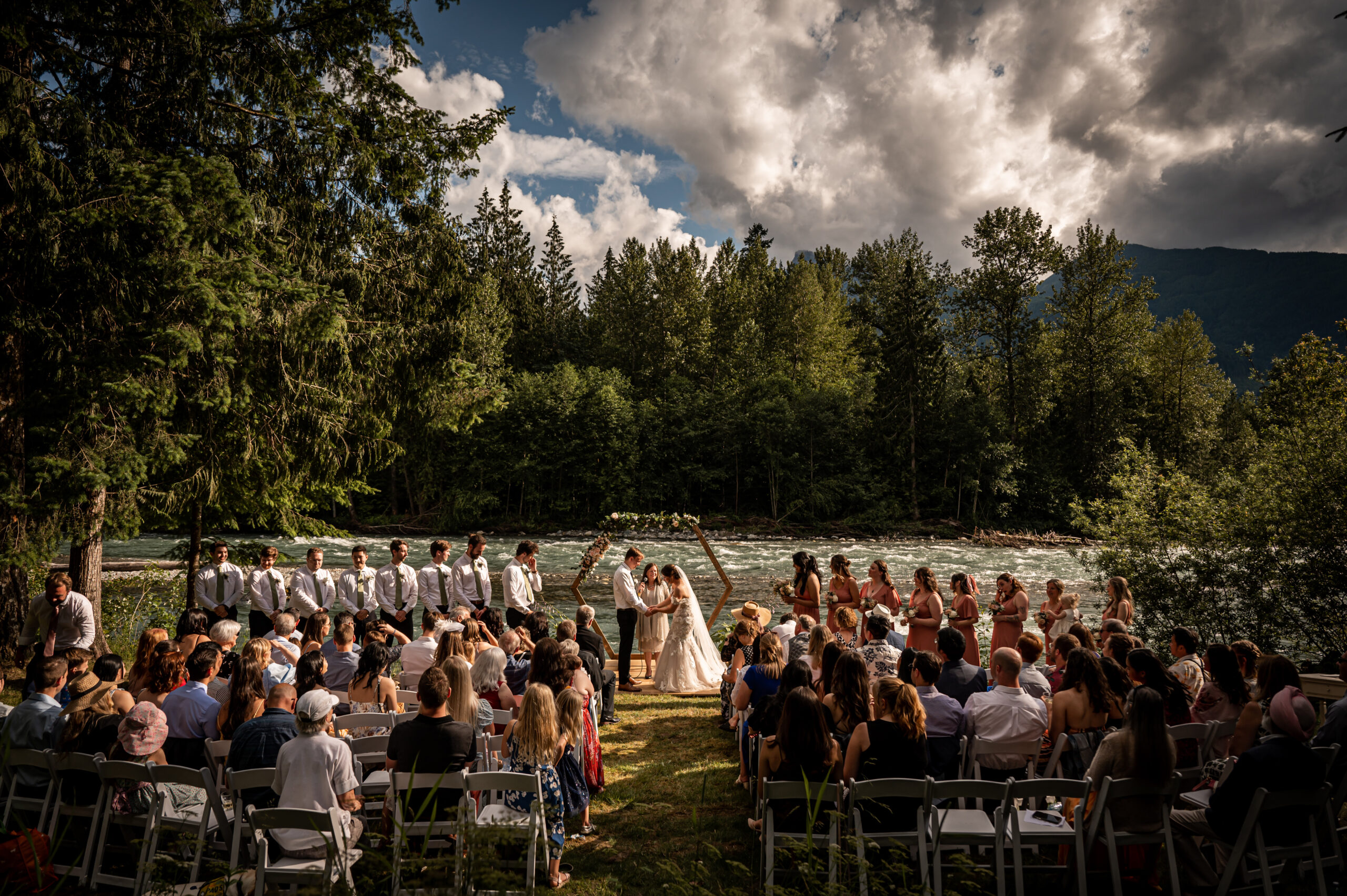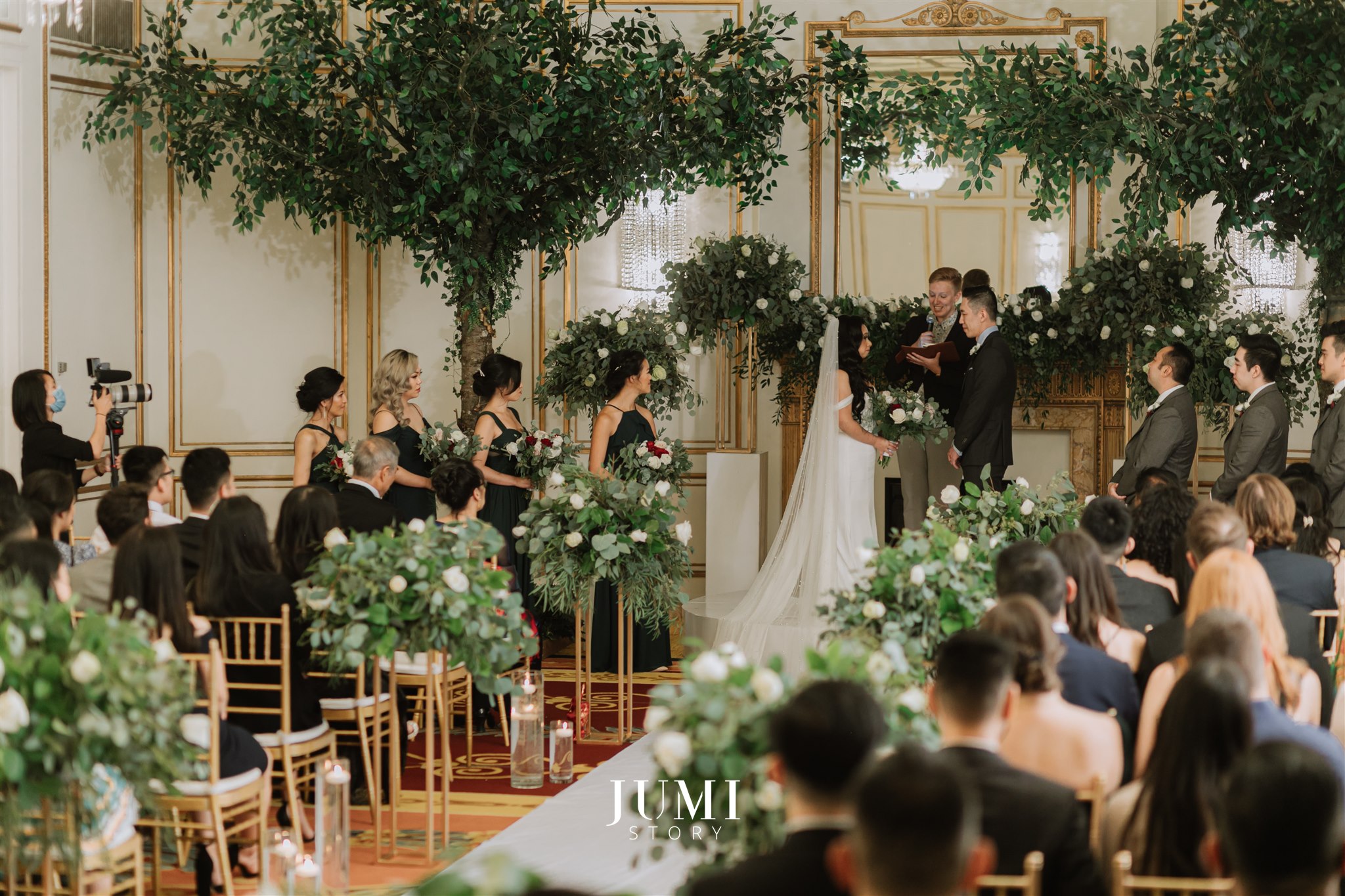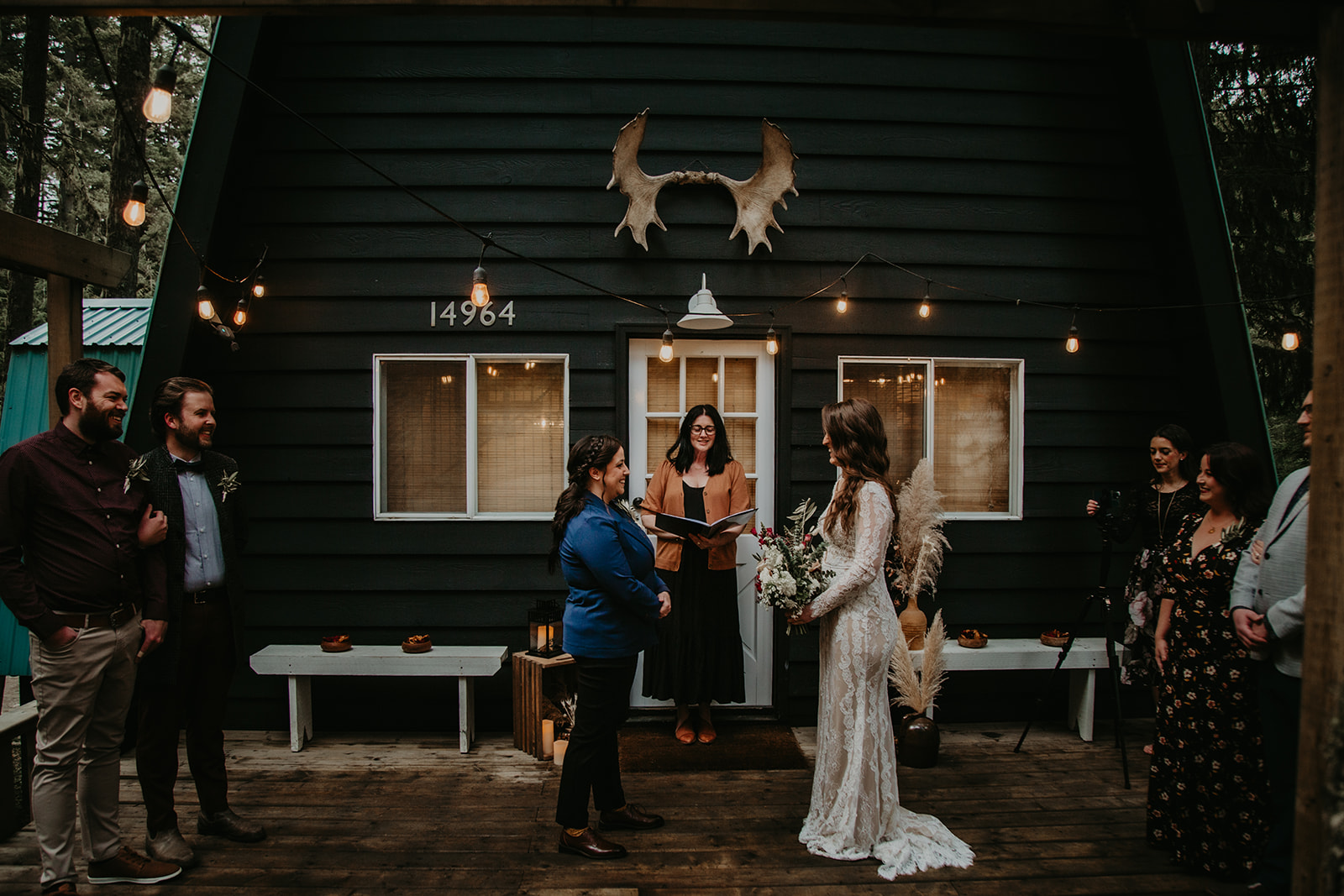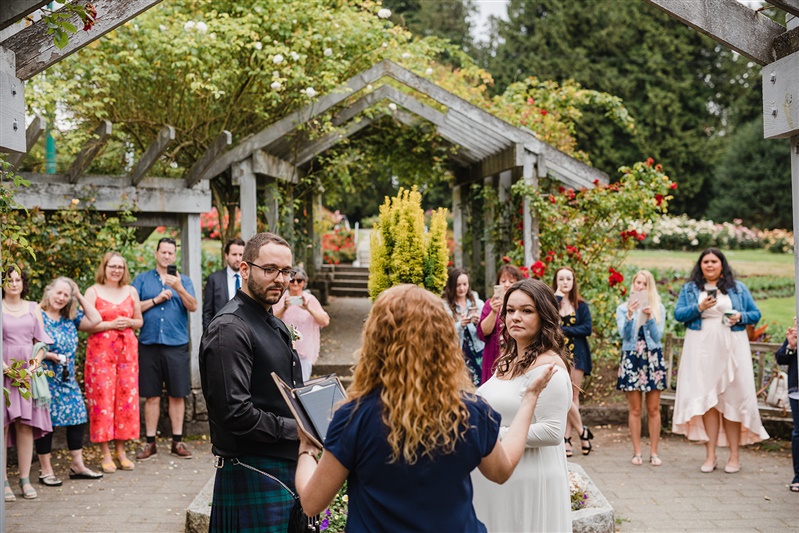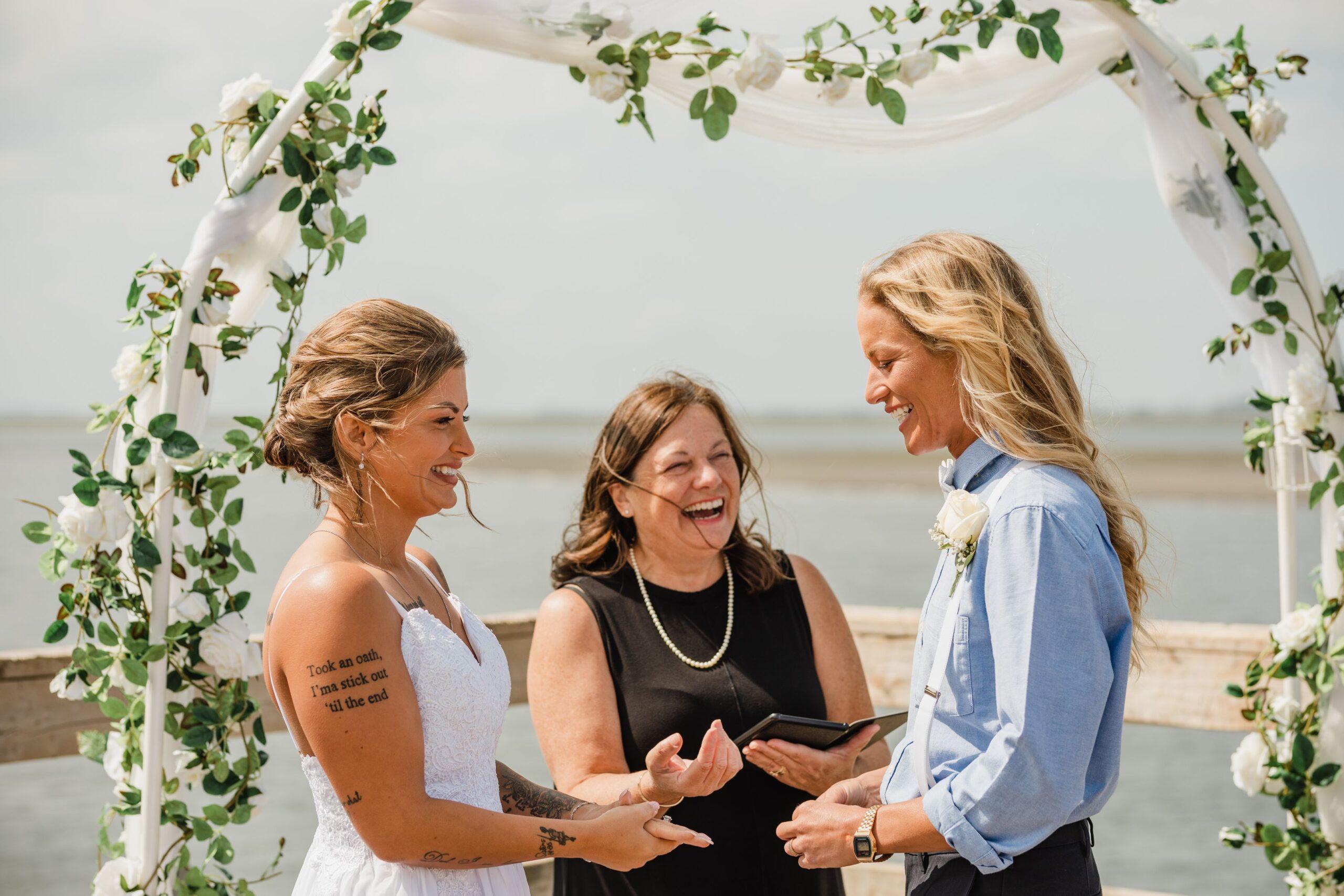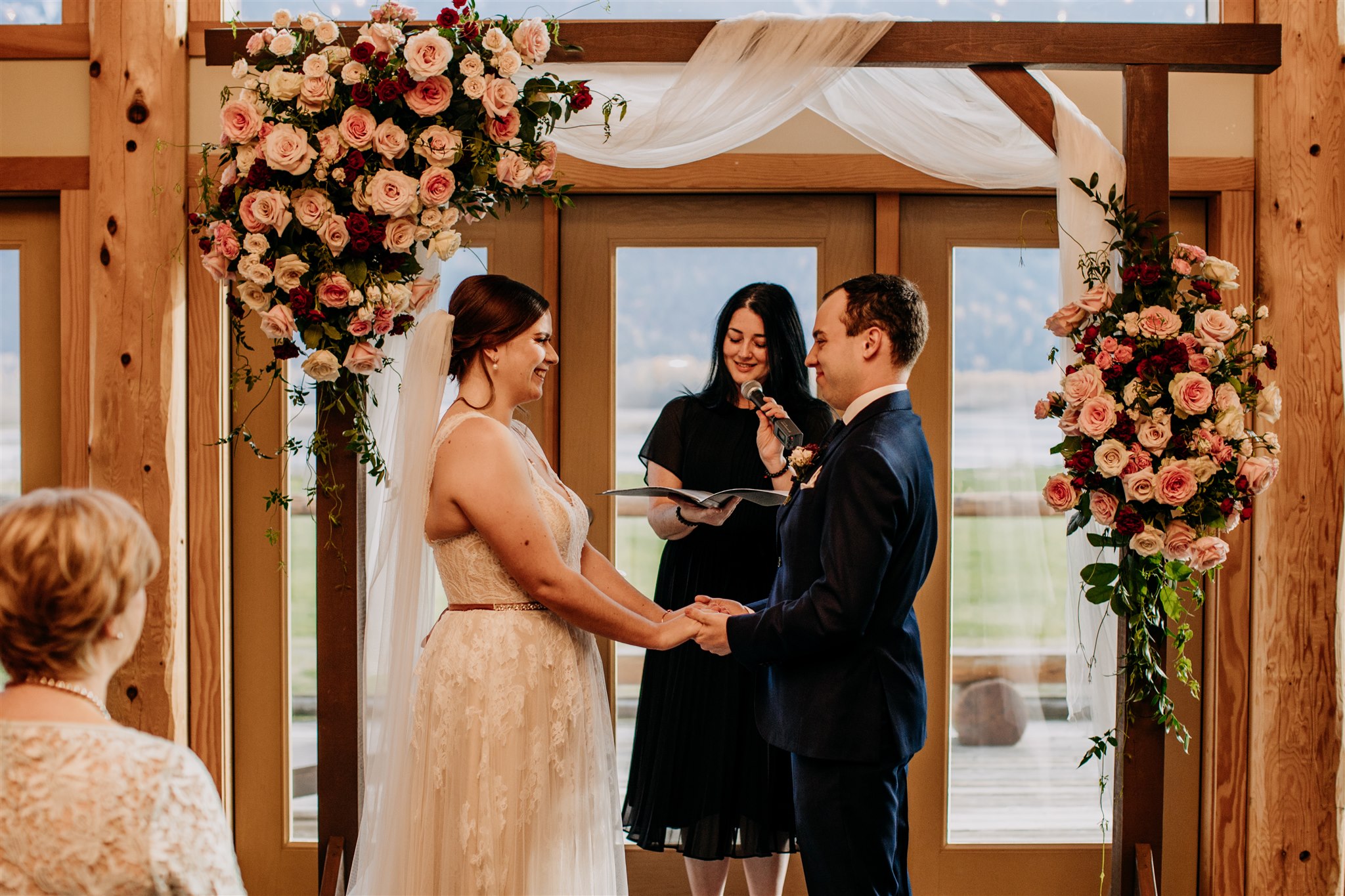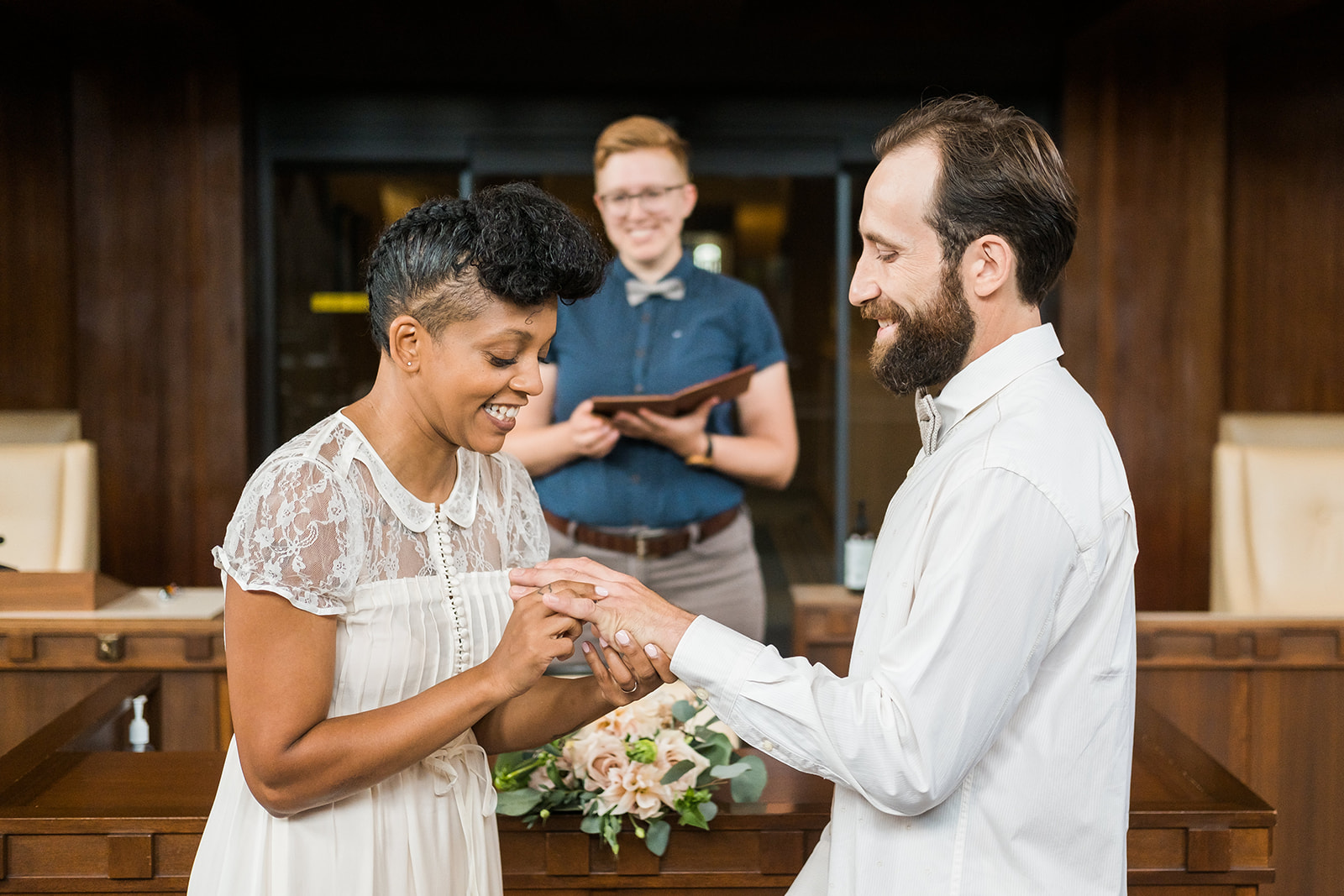As wedding officiants, we know a thing or two about love stories. And that’s why we want to help you write the best story on your wedding website!
Keep reading to learn why the “Our Story” section of your wedding website is so important, read examples of wedding website stories, hear our top tips for what to include, and find out who to ask for help!
What is “Our Story” on a wedding website?
Our Story is the section on your wedding website where you share the story of your relationship – how you met, how you fell in love and how you decided to get married. It’s a chance to let your guests learn more about you two and remind them of the real reason why you’re getting married – love!
Do we have to write about our love story on our wedding website?
No, writing your love story on your wedding website isn’t mandatory, but it is a really good idea!
Some of your guests may be new friends who don’t know how you two met or family members of one partner may not know anything about the other partner. Your love story is a great way to catch all these people up on the important details of your lives.
When you’re in the midst of wedding planning, it can be so easy to get caught up in the logistics. You spend so much time planning out the food, the outfits, the decor, etc. It can be nice to come back to the reason why you’re having this whole party. Plus, putting together your website love story is really good practice for writing your vows!
What to include in Our Story on your wedding website
The “Our Story” section of your wedding website could include things like:
- How you met: Take people back to the beginning of your relationship.
- Your first date: Who asked who out? Where did you go? What were your first impressions of each other after that first date?
- The proposal: How did you decide to get engaged? What did the proposal look like?
- Your relationship milestones: Talk through the highlights of your relationship like moving in together, adopting a pet, changing careers, going on trips, etc.
- Dreams for your future: What are you looking forward to? Most of your love story talks about things that have already happened so this is your chance to dream big for your future together.
- Why you’re getting married: Share what you love most about each other and why it is you want to get married.
- Excitement for the big day: Don’t forget to end your story with a line that lets your guests know how excited you are to celebrate with them at your wedding.
Does your story have to include all of these elements? Nope. Choose the elements that are important to your relationship and the stories you want to share with your guests.
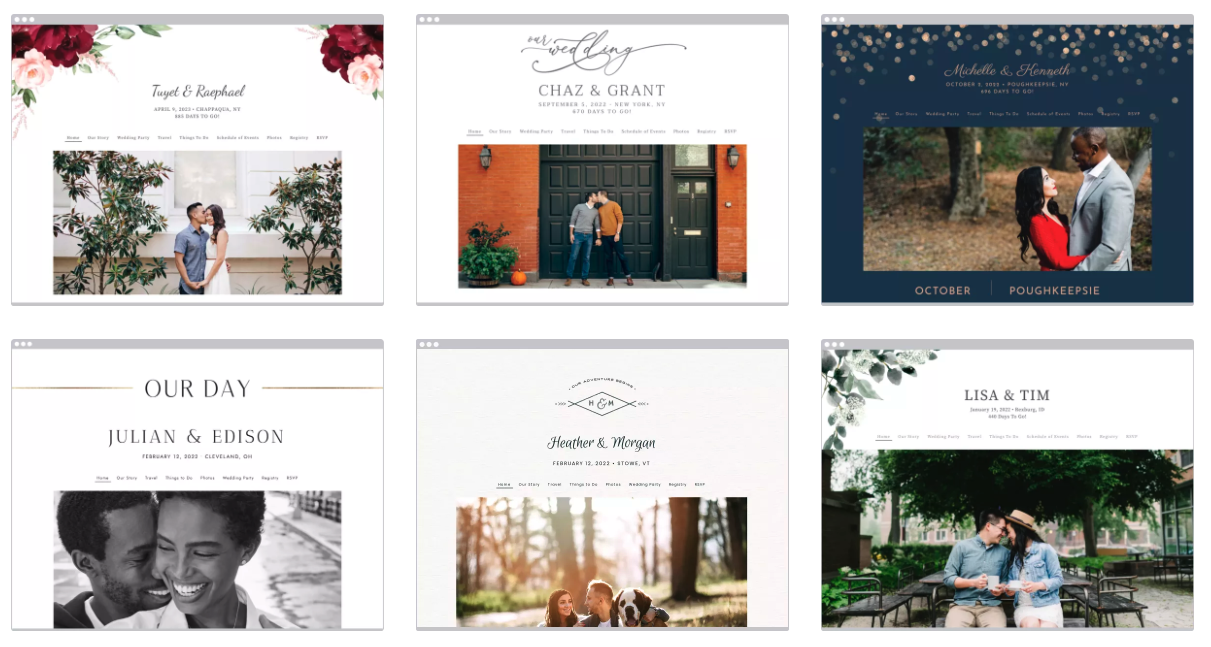
8 tips for writing your love story on your wedding website
- Remember your audience: You’re writing this story for your loved ones, so it’s okay to be casual and conversational. But remember that your grandma might read this, so keep it PG!
- Write your love story together: Both you and your partner should contribute to writing your love story. You can each write different parts or you can write together.
- Include your personalities: This isn’t a cover letter or corporate website! Don’t be afraid to include funny stories and a bit of your personality throughout your wedding website.
- Keep it short: No one wants to read a novel. Stick to the important or special details and skip the rest.
- Make it easy to read: It’s tough to read a block of text so help your guests out by breaking up your story with short paragraphs, photos and headings (if needed).
- Get inspired: Before you start writing, take a walk down memory lane. Look through photos, videos, cards and letters to remember your best relationship moments.
- Choose a POV: You’ll want to choose a point of view (POV) to write your story in, either first person singular (I), first person plural (we) or third person (she/he/they). Check out the our story wedding website examples below to see these POVs in action.
- Stick to a chronological story: It’ll be easier for your guests to follow along if you tell your love story chronologically – in the order that events happened.
Our Story wedding website examples
Below are three examples of Our Story sections you might see on a wedding website!
Jenna & Sam: Short love story written in the first person from one partner’s POV
Our love story began with a disastrous blind date, set up by our prankster friends who thought it would be funny to pair two people with entirely different tastes. Our first date was a comically terrible karaoke night where we butchered classic songs. Sam’s attempt at an air guitar solo was unforgettable, and we couldn’t stop laughing.
Sam proposed with a comically oversized carnival ring, deadpanning, “Will you tolerate my love forever?” We laughed so hard but I managed to say yes through the giggles.
Our journey has been filled with hilarious moments, from navigating Sam’s action figure obsession to my attempts at converting him to indie music. We’re getting married because life is a riot with each other, and we want a lifetime of laughter, ridiculousness, and quirky adventures.
Our wedding will be a laugh-filled celebration of our unique love story. We can’t wait to share our humour and happiness with our loved ones as we embark on this new journey as spouses.
Alex & Jamie: Queer love story written in the third person
Alex and Jamie’s love story began in the heart of Victoria’s Pride Parade. Alex was dancing with friends when they locked eyes with Jamie across the street. There was an instant connection that felt like destiny.
Their first date was a cozy night at a quirky local cafe. Jamie and Alex talked about everything; it was an evening of shared laughter and shared dreams. They both knew they had found something extraordinary.
On a beautiful summer evening, Jamie took Alex to the same spot where they had first met at Pride. Surrounded by love and acceptance, Jamie got down on one knee and asked Alex to marry them. Tears of joy and the cheers of the crowd were their witnesses, and Alex said yes without hesitation.
Alex and Jamie’s love has been a journey of self-discovery and growth. They’ve built a life centred on love, acceptance, and activism. They’ve supported each other’s personal and professional endeavours, celebrating every milestone along the way. Jamie and Alex want to stand proudly together, not just as partners but as a symbol of love’s diversity and strength.
Alex loves Jamie’s fierce passion and their ability to make Alex smile even on the toughest days. Their commitment to their community and their love is inspiring. Alex’s strength, resilience, and their beautiful heart never cease to amaze Jamie. Their love is a guiding light in Jamie’s life, and Jamie will cherish every moment spent together.
Jamie and Alex can’t wait to exchange vows, dance to their favourite anthems, and share this moment with their chosen family. Their hearts are bursting with excitement as they embark on this journey together as spouses, proudly living their love story.
Sarah & Michael: Travel love story written in the first person plural (we)
Our love story began in the most unexpected place – an airport. It was a typical busy Friday evening and we were both waiting for a flight to Toronto. Across a crowded terminal, we locked eyes and smiled at one another, total strangers who just so happened to share a moment.
Our first date was a spontaneous adventure. We decided to grab a cup of coffee right there at the airport and talked for hours about our dreams, travels, and everything in between. It felt like we had known each other forever. Time flew by, and before we knew it, our flight had been delayed. It was almost as if fate itself conspired to keep us together that night.
Fast forward to a romantic getaway in Paris – the city of love. As we strolled along the Seine, Michael got down on one knee and asked Sarah to be his forever. It was a moment straight out of a fairytale, and she said yes without a moment’s hesitation. We celebrated our engagement with croissants and champagne, knowing that our love was destined to be an extraordinary journey.
Over the years, we’ve built a life filled with countless milestones. From moving in together and adopting our beloved rescue dog, Charlie, to supporting each other through career changes and personal growth, we’ve always been each other’s biggest cheerleaders. Our adventures, whether they were exploring new cities or cozy nights in with a good book, have strengthened our bond in ways we never imagined.
We’re getting married because our love story has been nothing short of magical. We’ve found in each other a best friend, a confidant, and a partner in all of life’s adventures. We share the same values, dreams, and a deep love that grows stronger with every passing day.
As we stand on the precipice of this incredible journey together, we are filled with excitement and joy. Our wedding day is not just about celebrating our love; it’s about joining our lives in front of our cherished friends and family. We can’t wait to dance the night away, share our vows, and embark on this beautiful adventure!
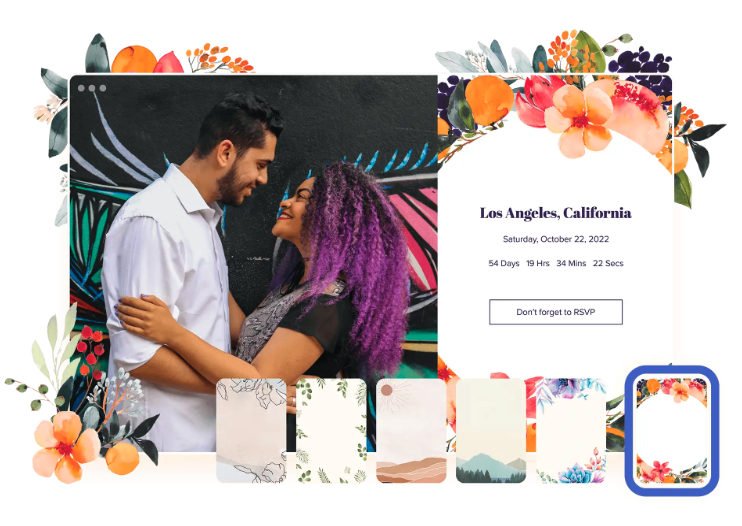
Don’t want to write your own story? Let the experts write it for you!
It can be intimidating to try and sum up your whole relationship in just a few paragraphs. You know you have a great love story but you’re just not sure how to tell it. So why not let the experts at Young Hip & Married write your love story for you?
Our wedding officiants have been writing and sharing love stories for years with their custom written ceremonies and the hundreds of weddings they’ve officiated. With your input, our officiants will write a story on your wedding website that is completely personalized to you.
Your love story. Our storytelling.
Get in touch to inquire about our wedding website story writing services and pricing!
5 fun alternative ways to tell your love story
Don’t want to write the same love story on your wedding website that everyone else writes? Try something different! Here are five different ways you could share your story:
- Timeline of your relationship: Instead of writing out long paragraphs, you could create a timeline sharing the different moments of your relationship such as when you met, when you moved in together, when you got engaged, etc.
- Interview with the couple: Sometimes it’s easier to write when you’re answering questions. Create or search for some relationship questions you can each answer in place of writing out your full love story.
- Ask your loved ones: Rather than answering interview questions yourselves, you could interview your closest loved ones. Ask them to describe your relationship and how they knew you had found the one.
- Art version of your love story: Consider yourself better with a paintbrush than a pen? Then you can draw, paint, craft or design your love story and share that in place of a traditional written story.
- Video sharing your story: Sometimes it’s easier to talk than to type. If you’re better at conversation than writing things down, a video with the soon-to-be newlyweds could be a great way for guests to really get to know you two.
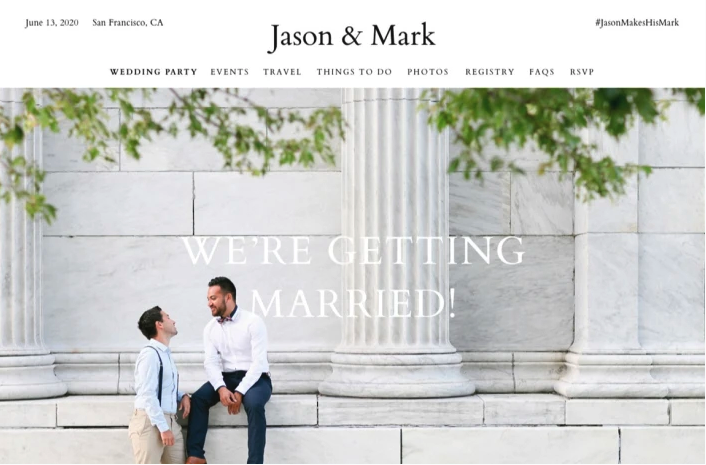
What else do we need to include on our wedding website?
Besides putting Our Story on your wedding website, here are a few other things your website should include:
- The basics: Guests need to know who is getting married, where and when, plus when they need to RSVP by. This is the basic info that guests often forget, so make sure it’s prominent on your site.
- Location info: Depending on your venue, you may want to provide a map, driving or transit directions, and parking instructions. If you have a shuttle or want to provide hotel recommendations for the local area, your website is a great place to let guests know.
- Guest expectations: What should guests expect at your wedding? Let them know the dress code and any other info that will help them prepare for the day, such as knowing the outdoor ceremony will be on grass (don’t wear heels!) or that you’re not serving alcohol.
- RSVP: Many wedding websites allow you to gather and track RSVPs directly on the site. Make this obvious so even your least tech-savvy guests can easily RSVP.
- Gifts: Your wedding website is the perfect place to put information about gifts, such as a link to your registry or a note about how you’d (very graciously) prefer a monetary contribution to your honeymoon.
- Photos: Not sure what to do with all of those beautiful engagement photos? Put them on your wedding website!
- FAQs: This is a great place to answer all of the questions your guests may have so hopefully they don’t text you the week of the wedding to ask. Information about plus ones, kids at the wedding and unplugged ceremonies can live on your FAQ page.
Lastly, it’s a good idea to resend the link to your wedding website in the week or two leading up to your wedding. While you likely included the URL on your wedding invitations, mosts guests will have forgotten it by the time your wedding rolls around (and they may have thrown out your invite, sorry to break it to you!).
To ensure everyone has all of the info they need, you can send out a quick email or text to your guests with the link and letting them know how excited you are to celebrate with them.
With these tips, we know you’ll be able to write the best story on your wedding website. And if you’re not feeling up to the task, get in touch to let the experts handle the writing for you!

